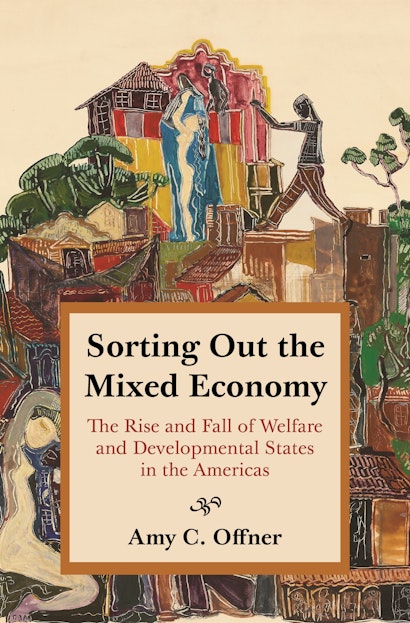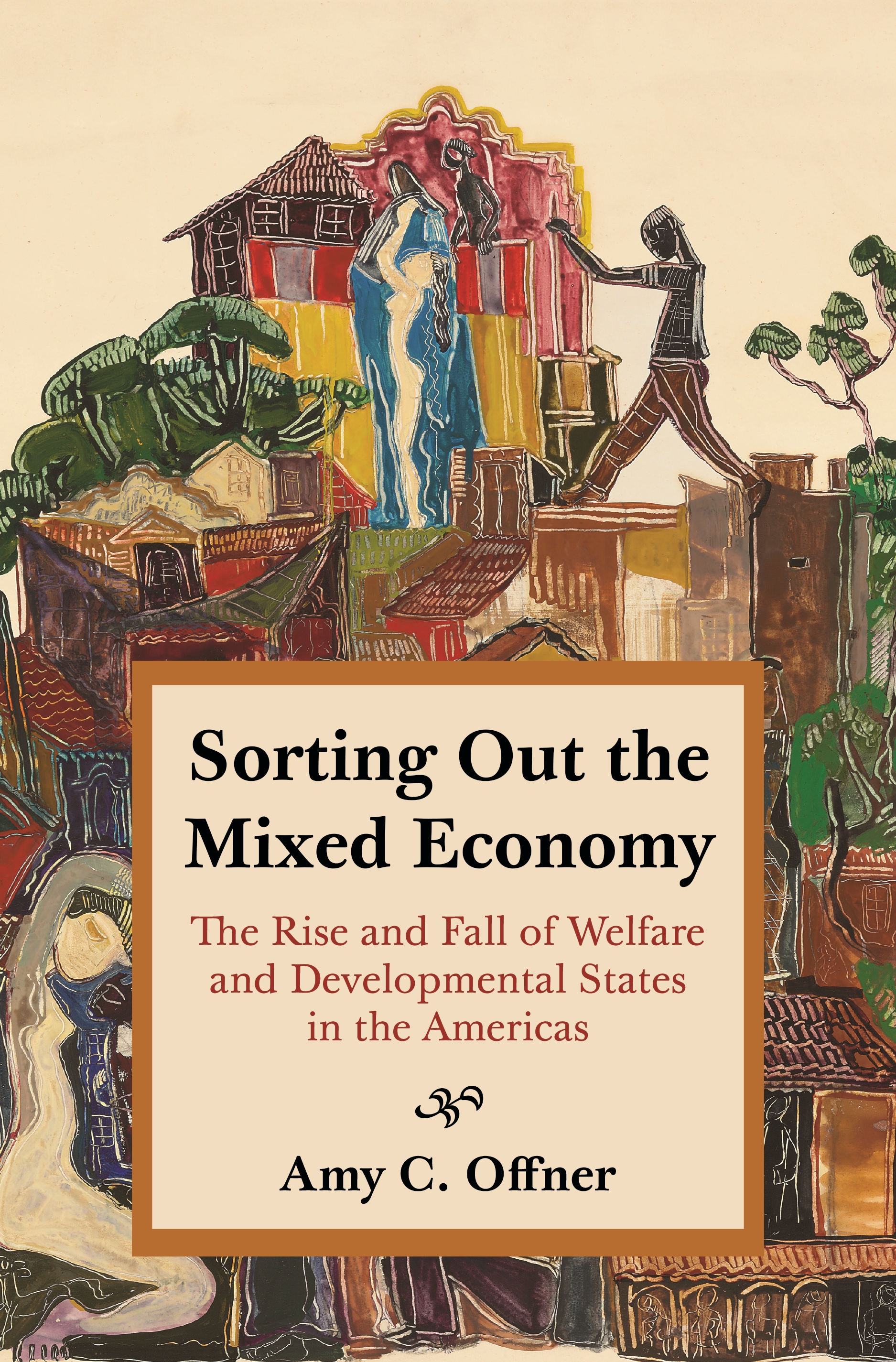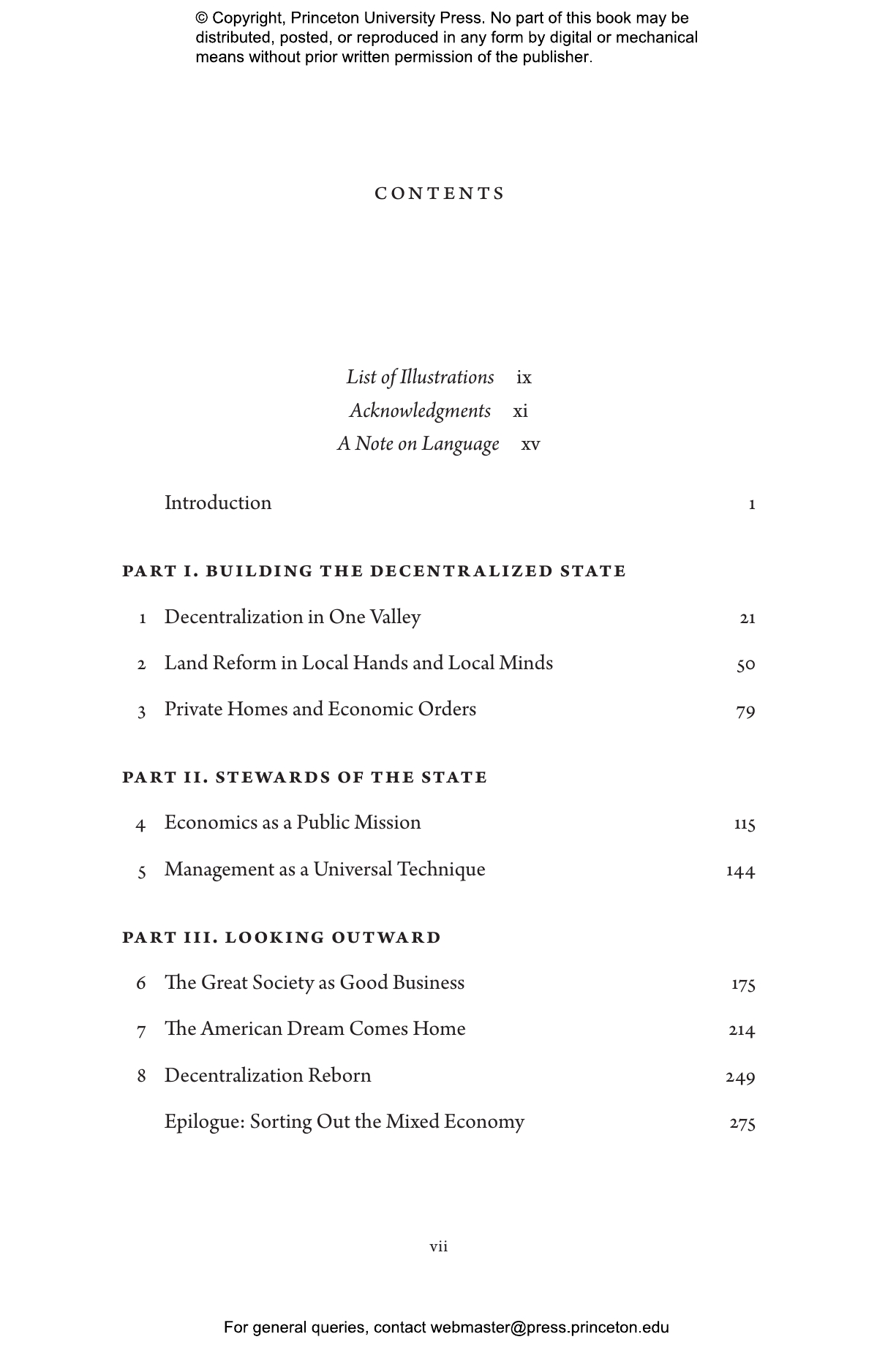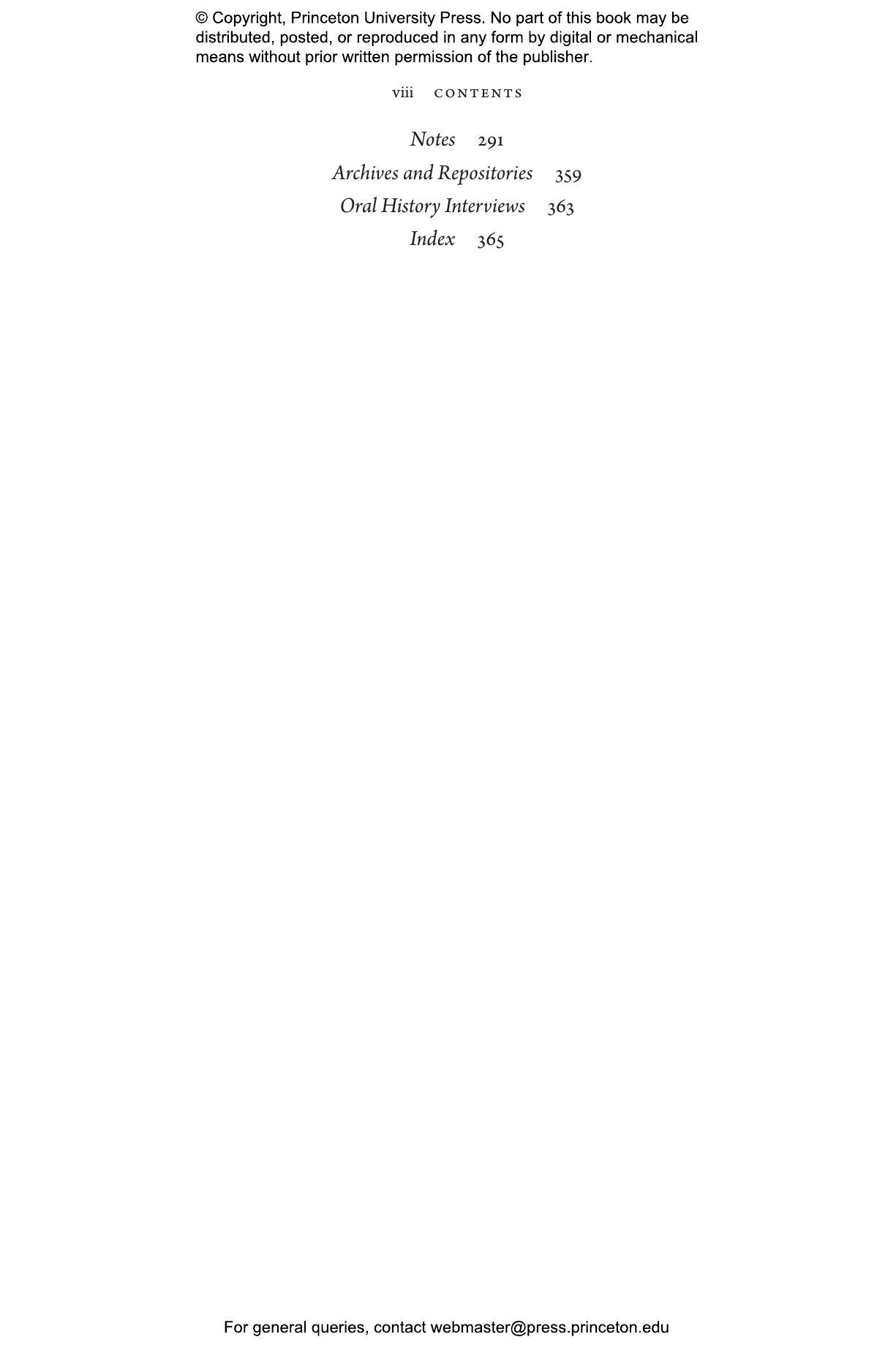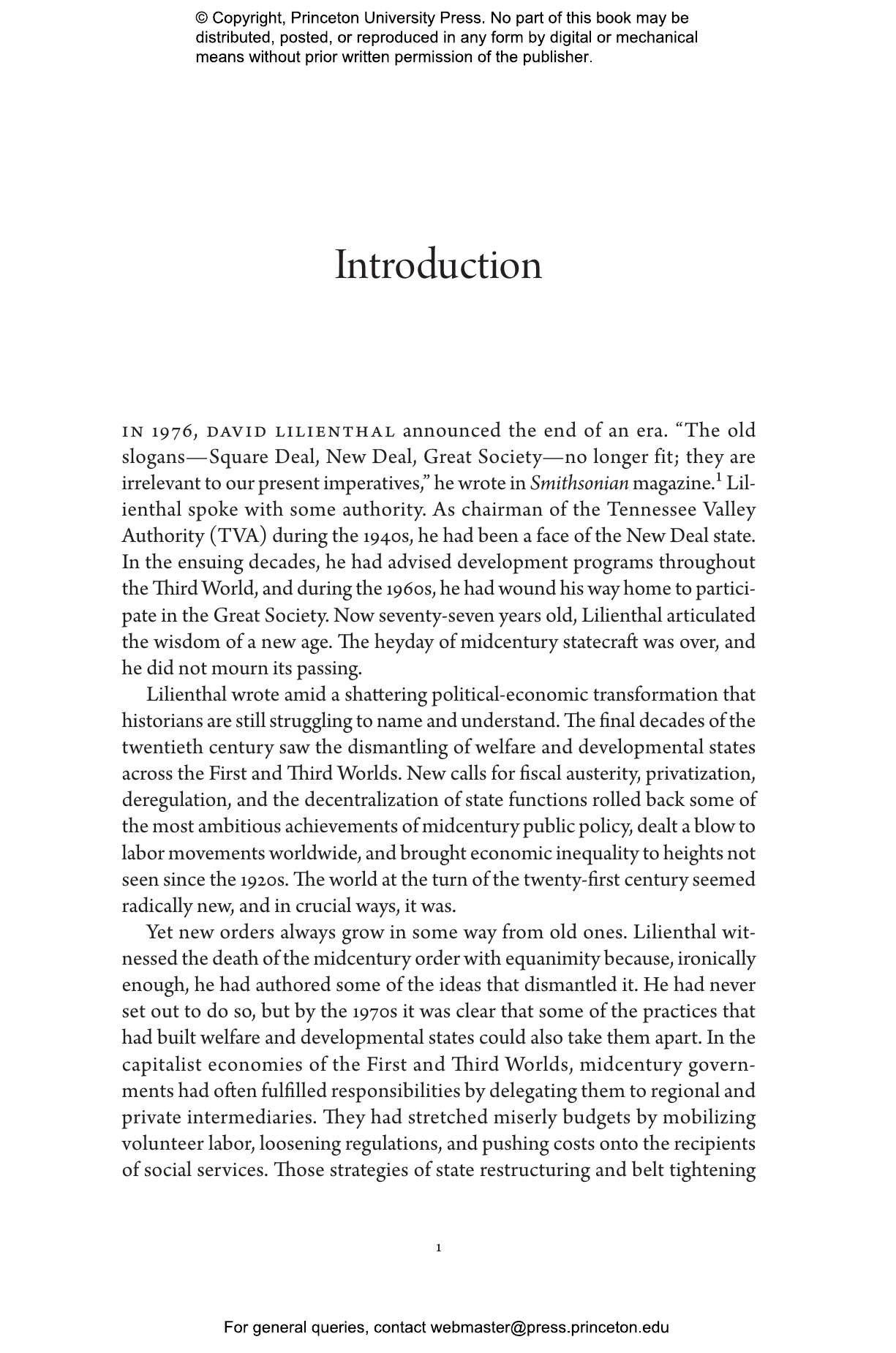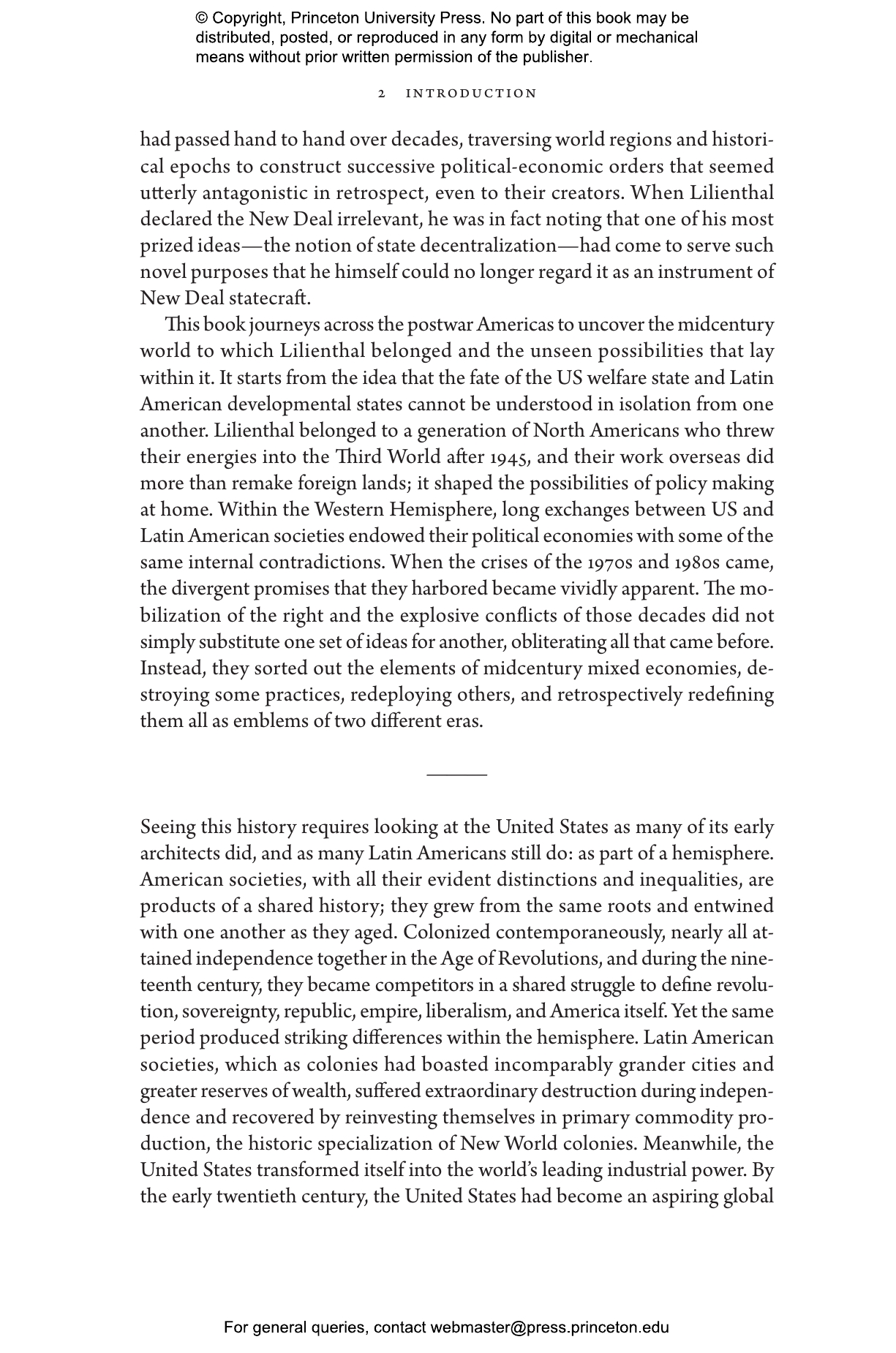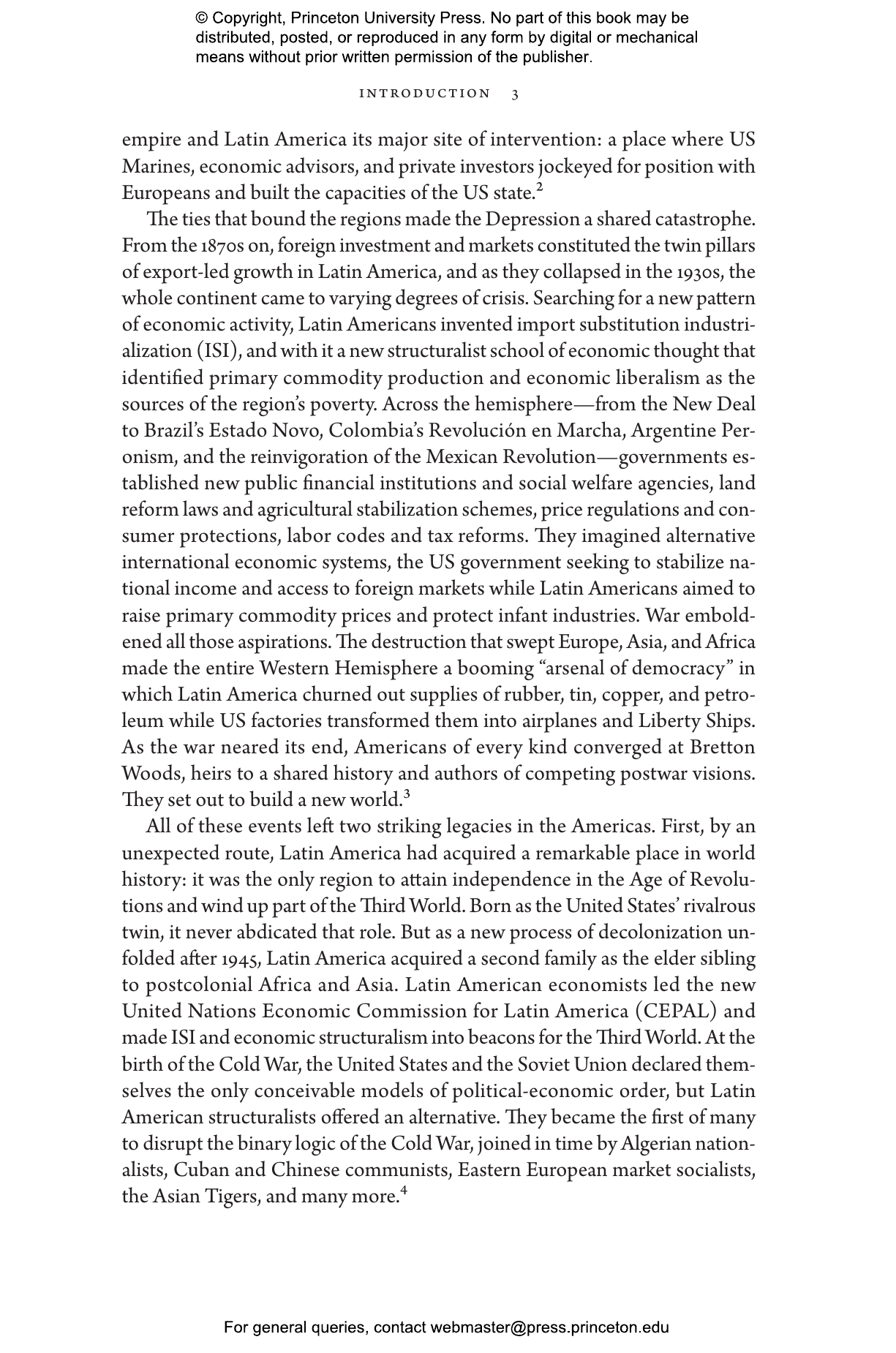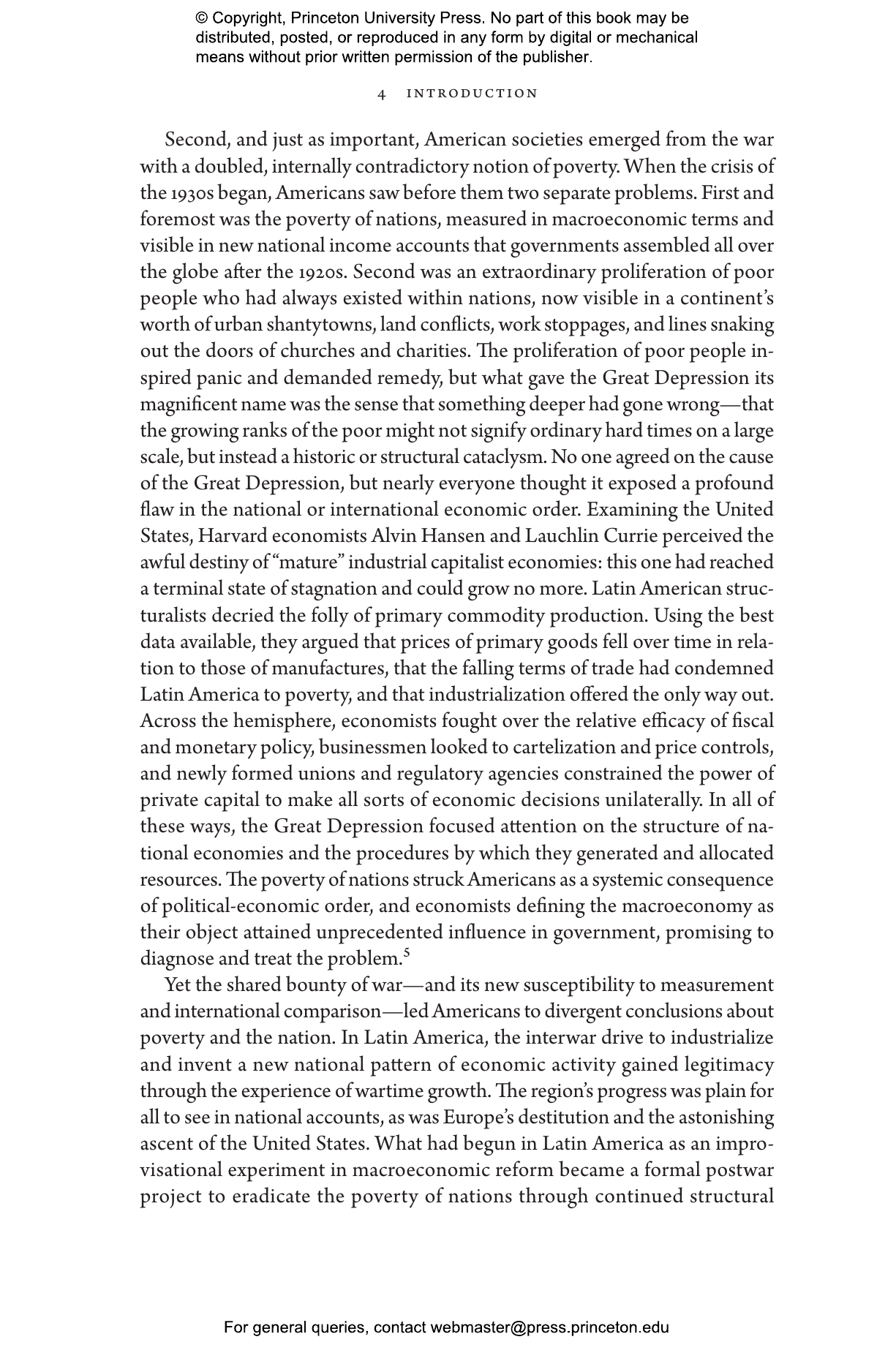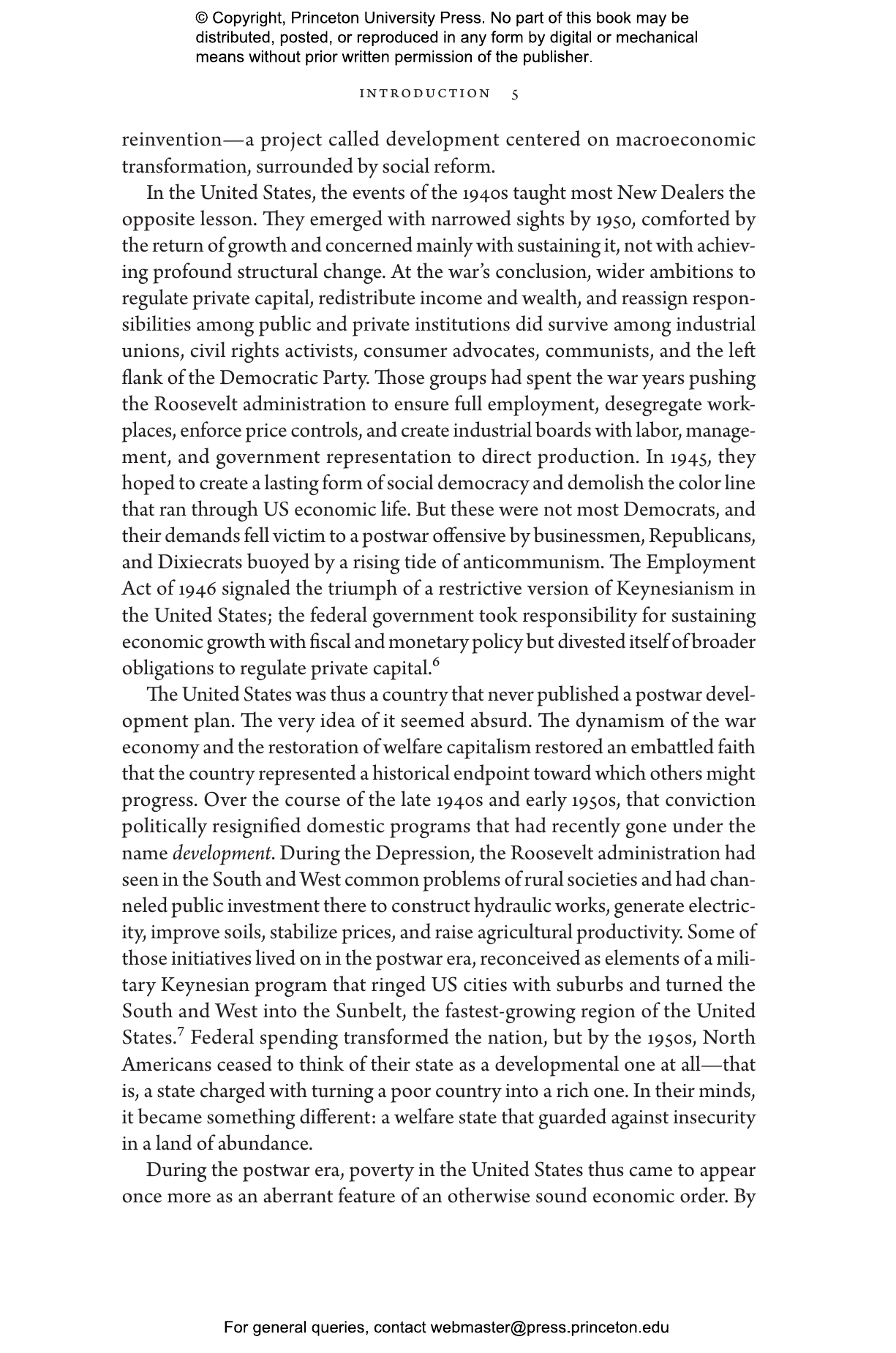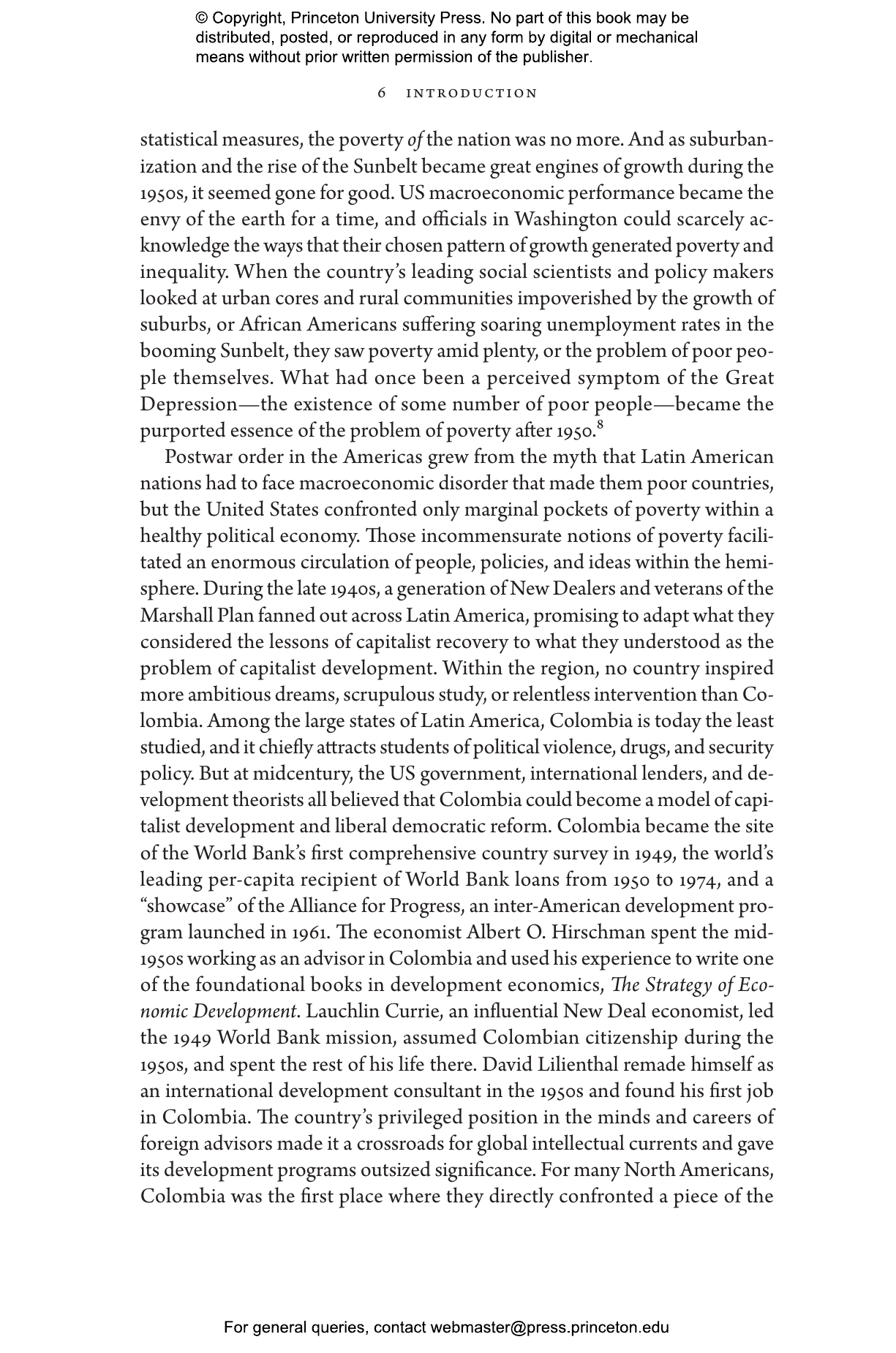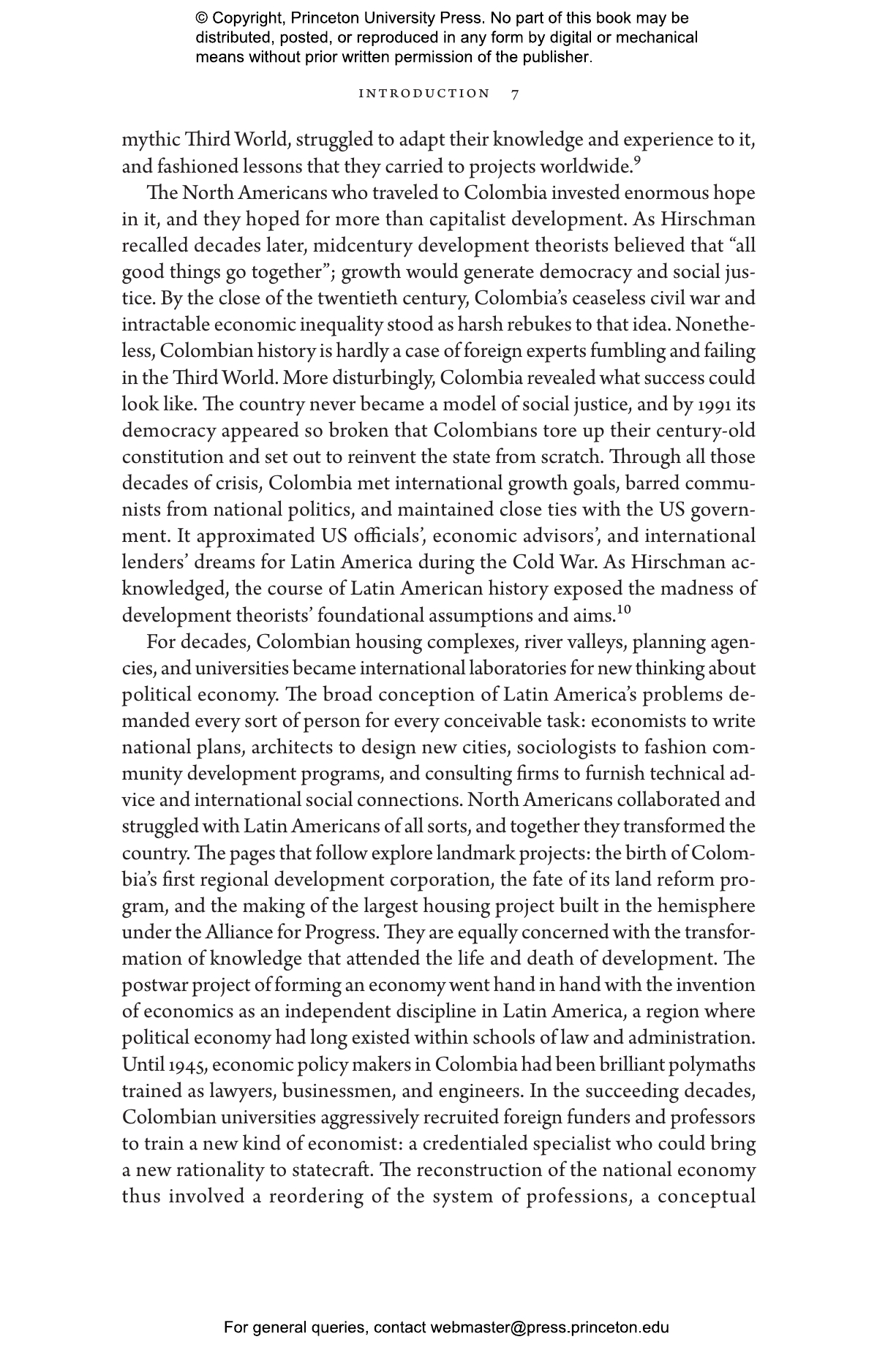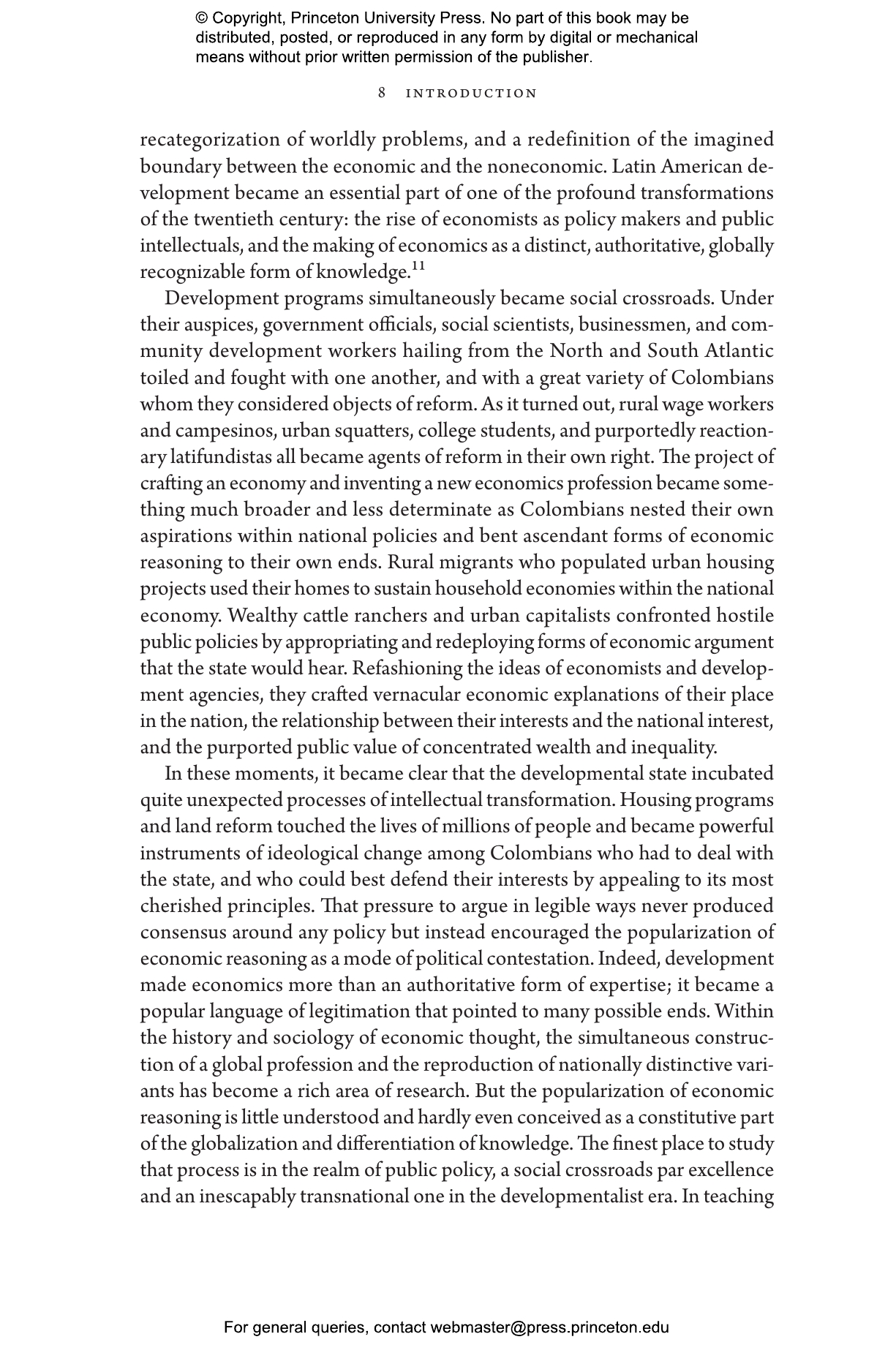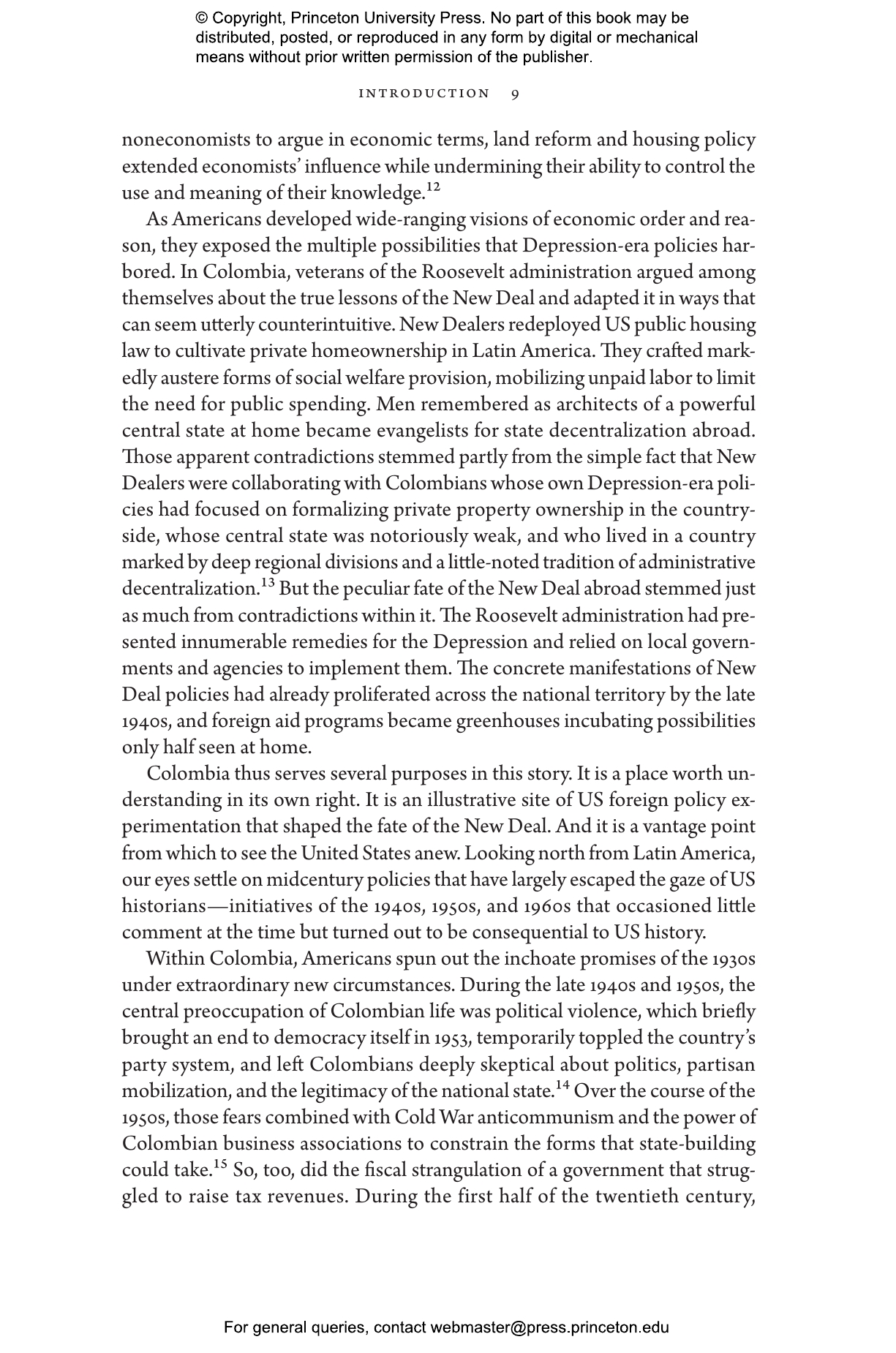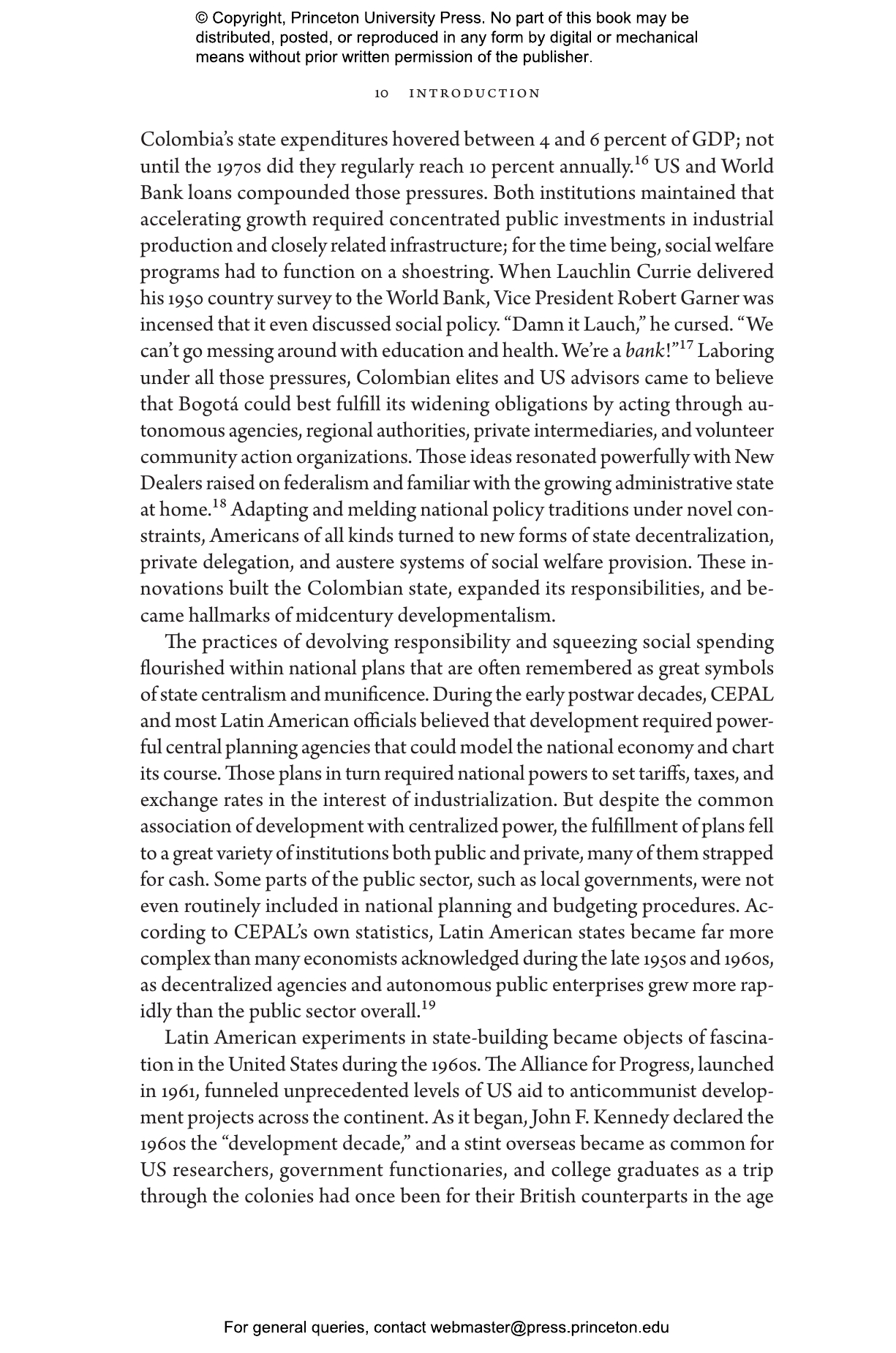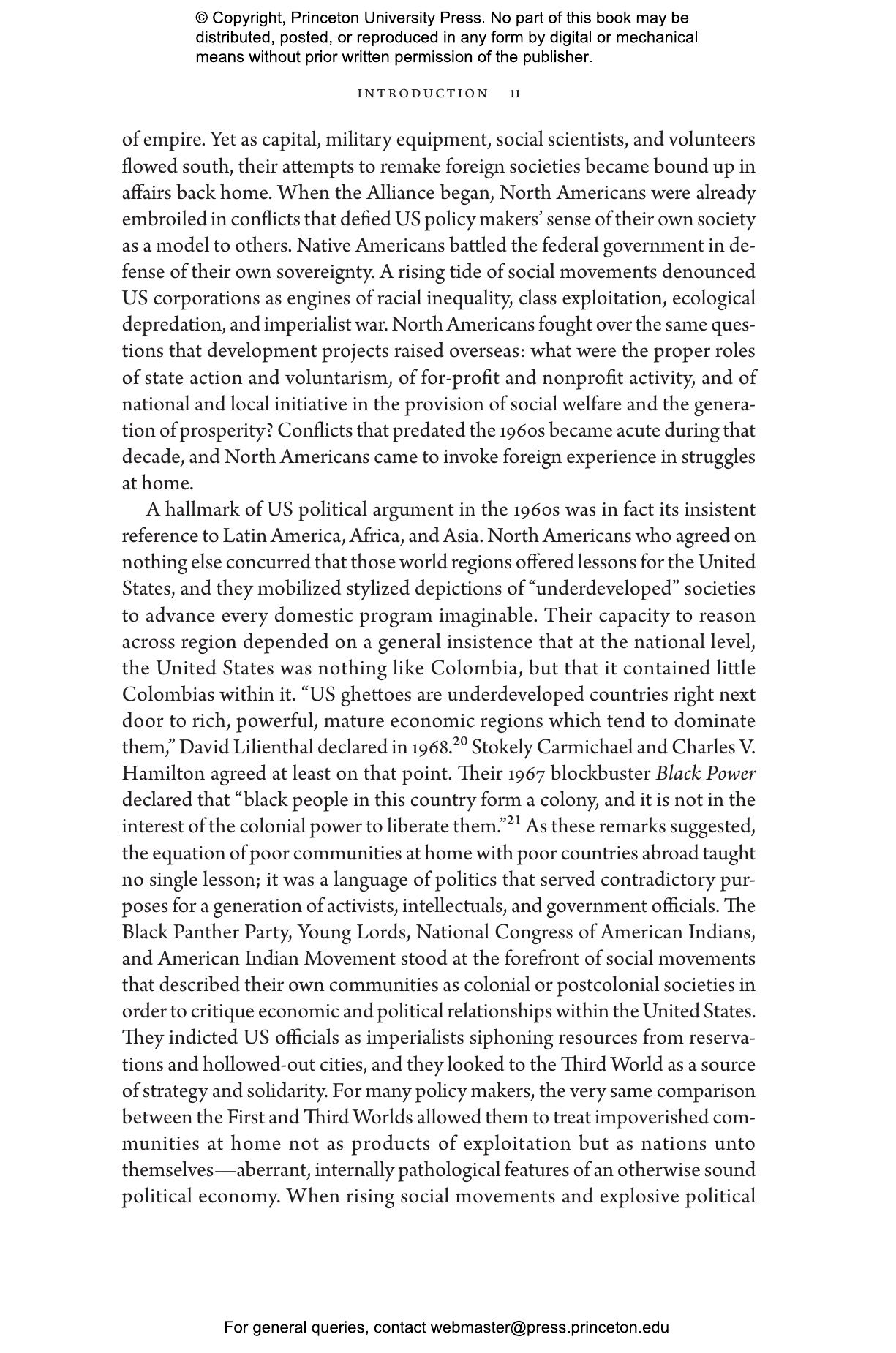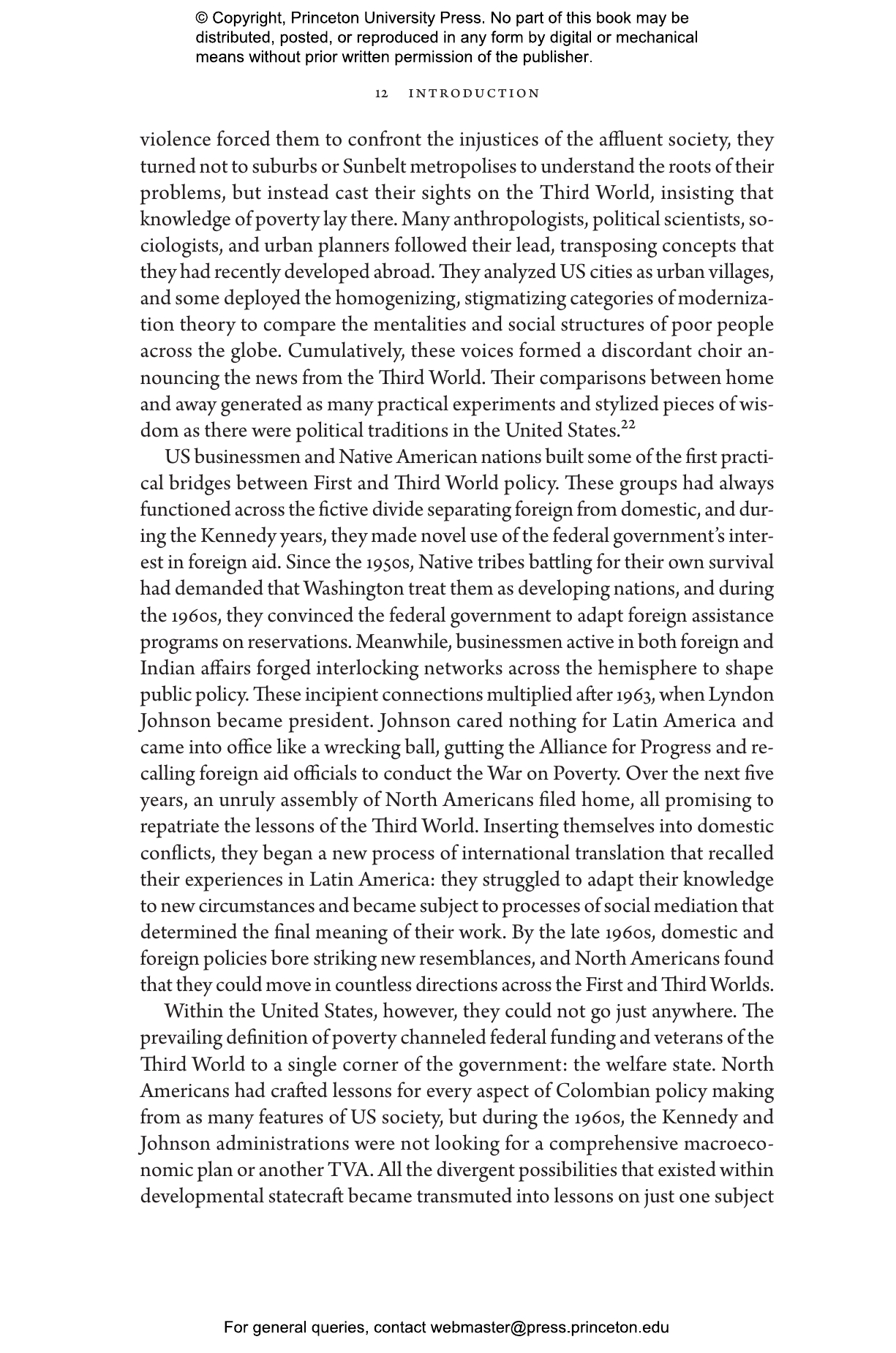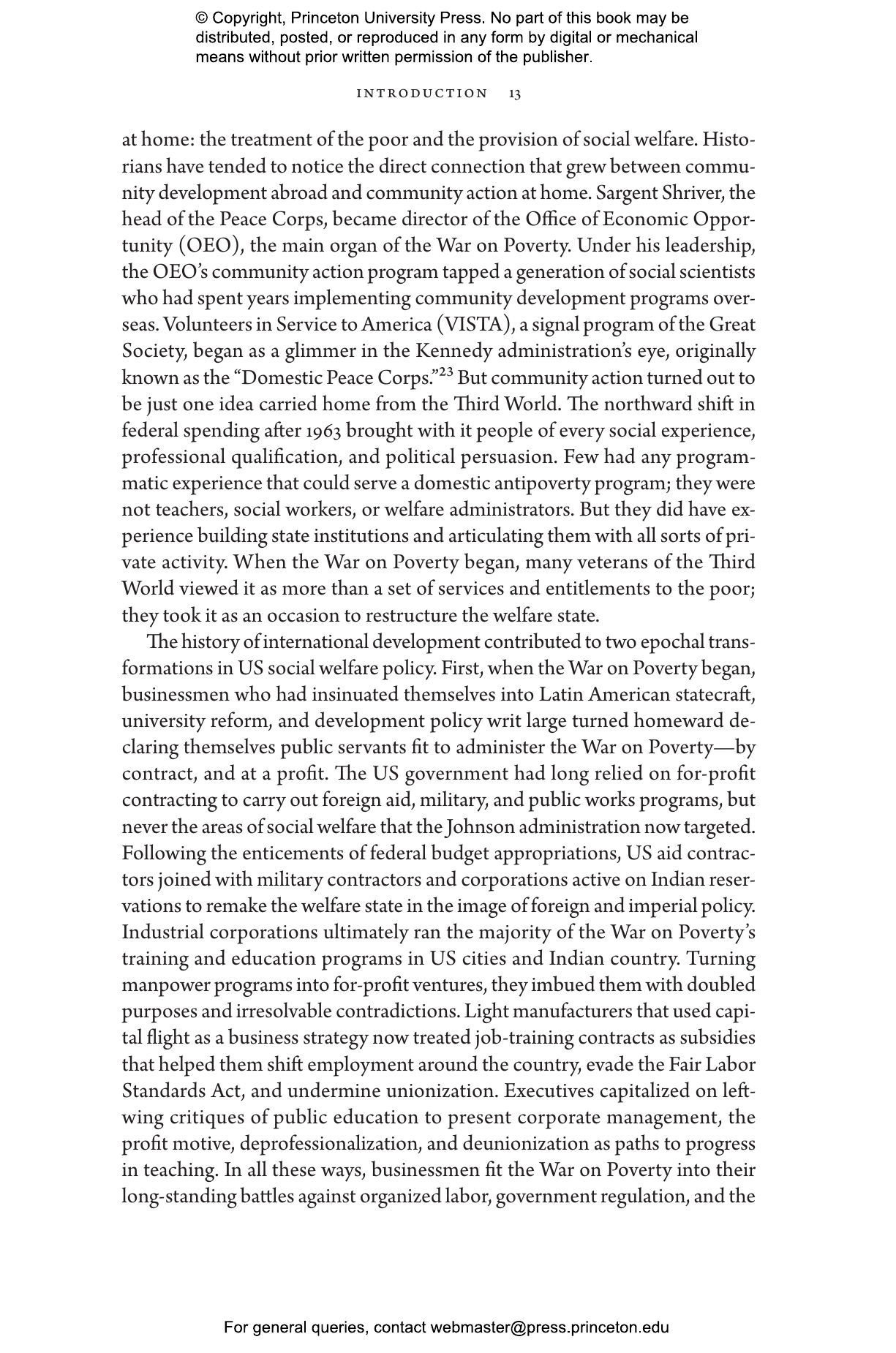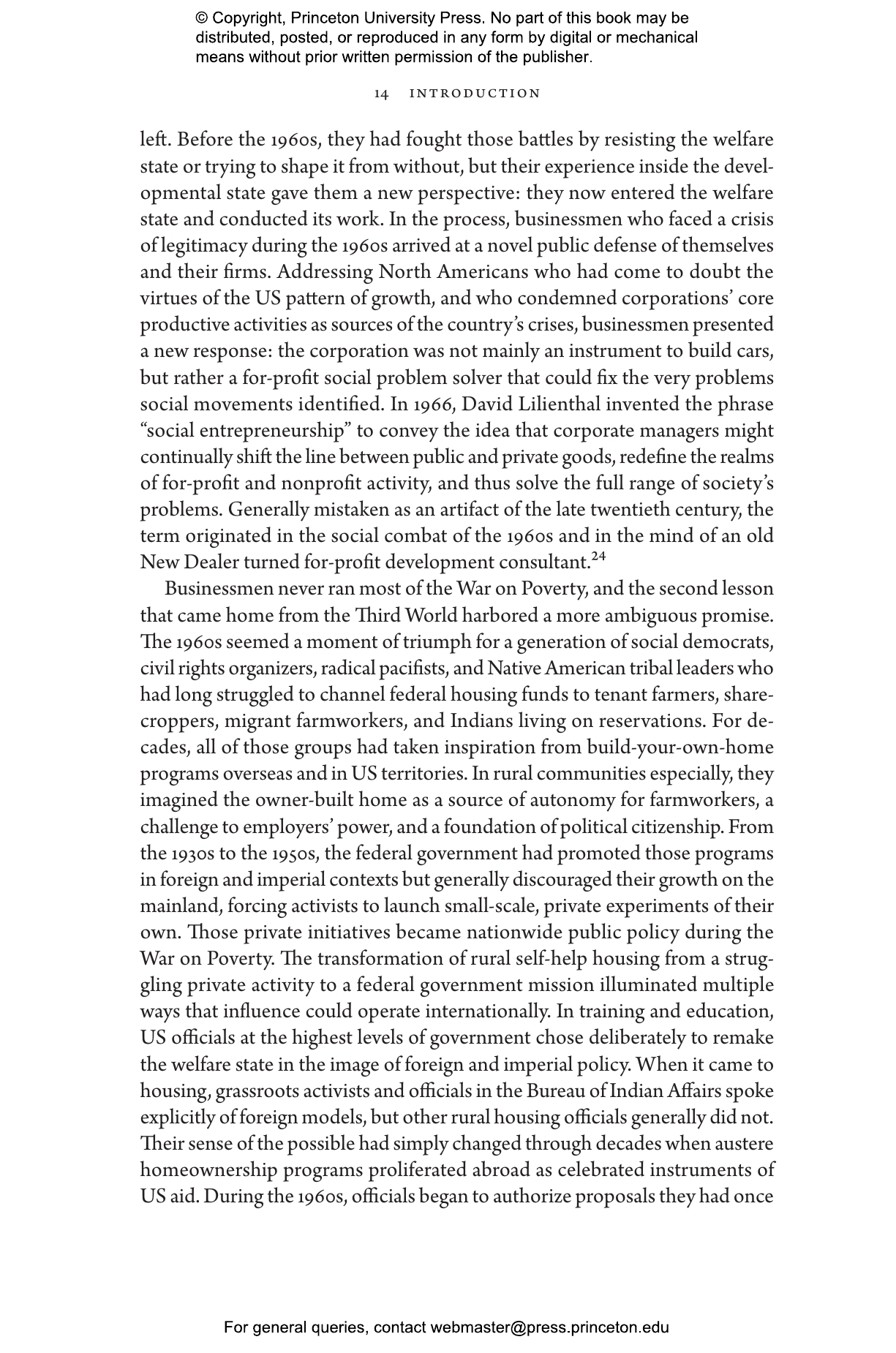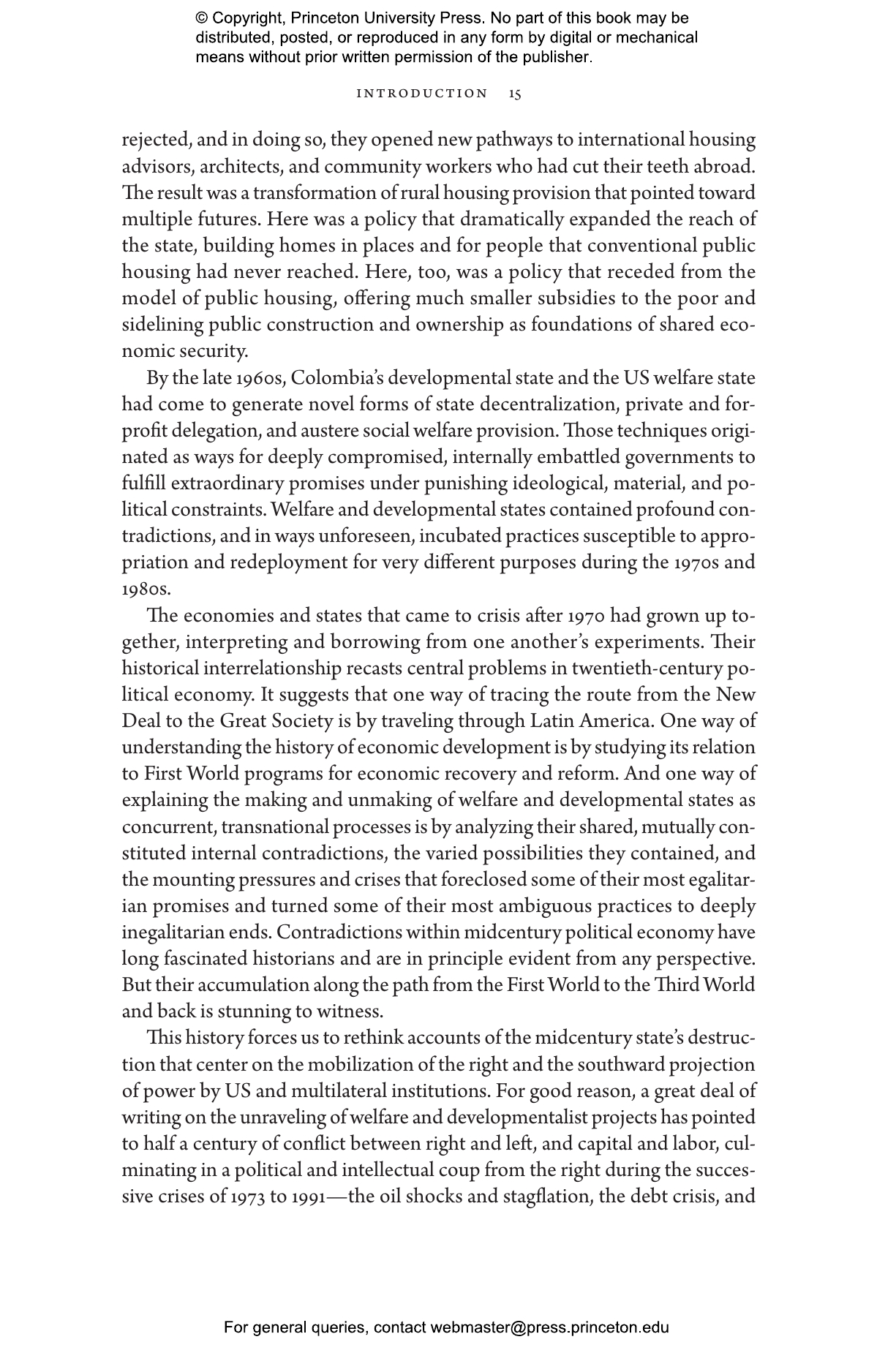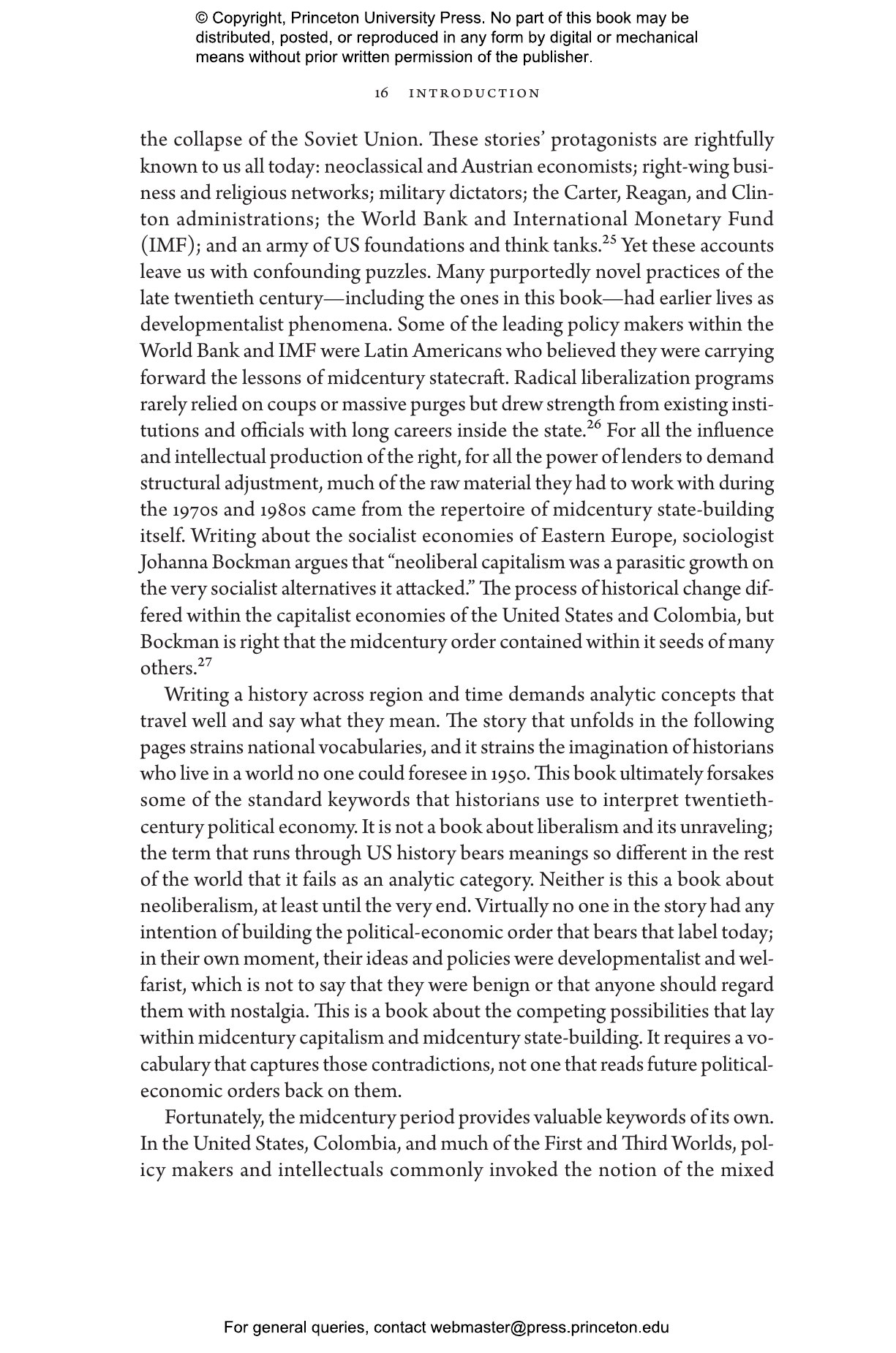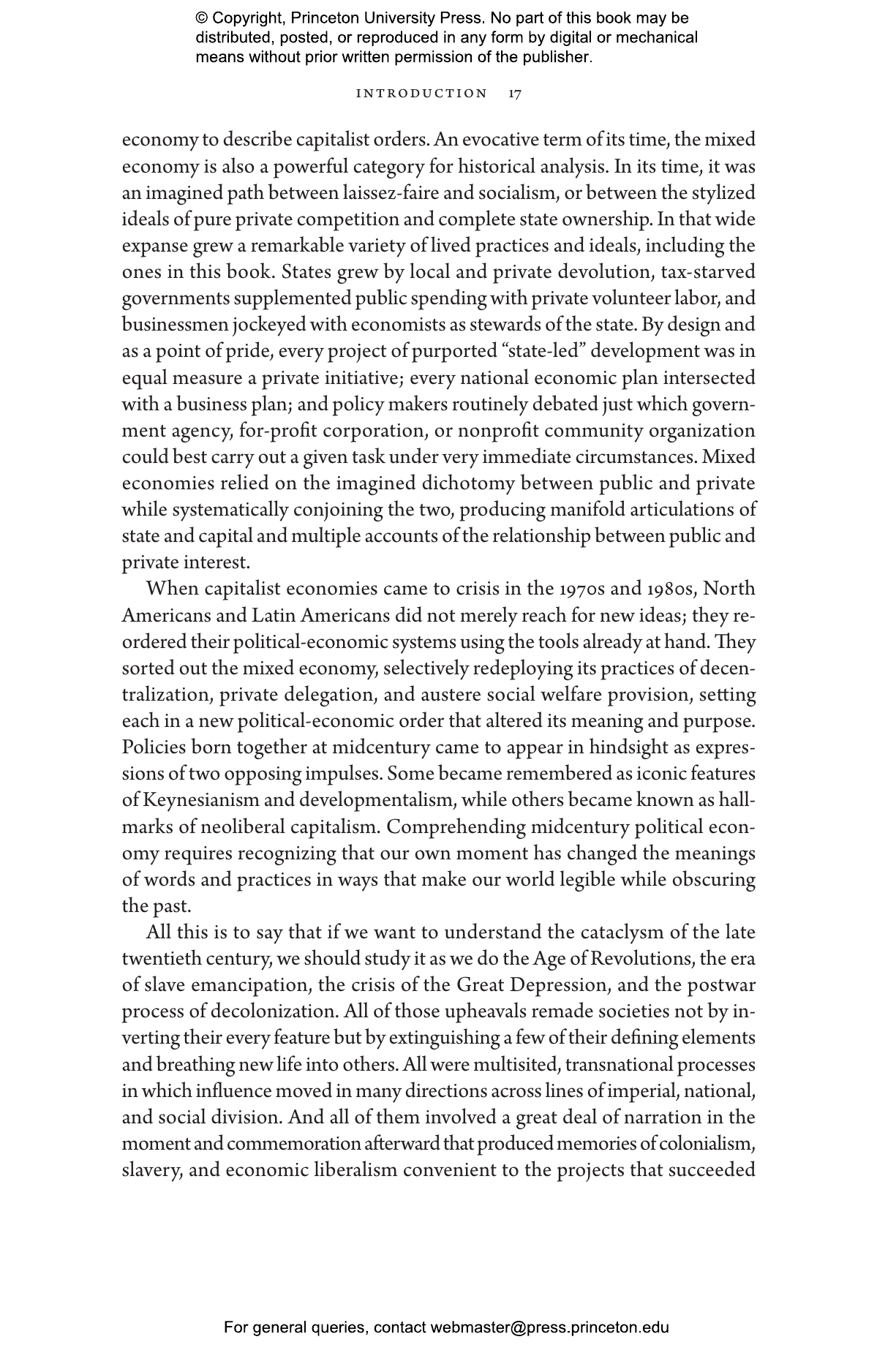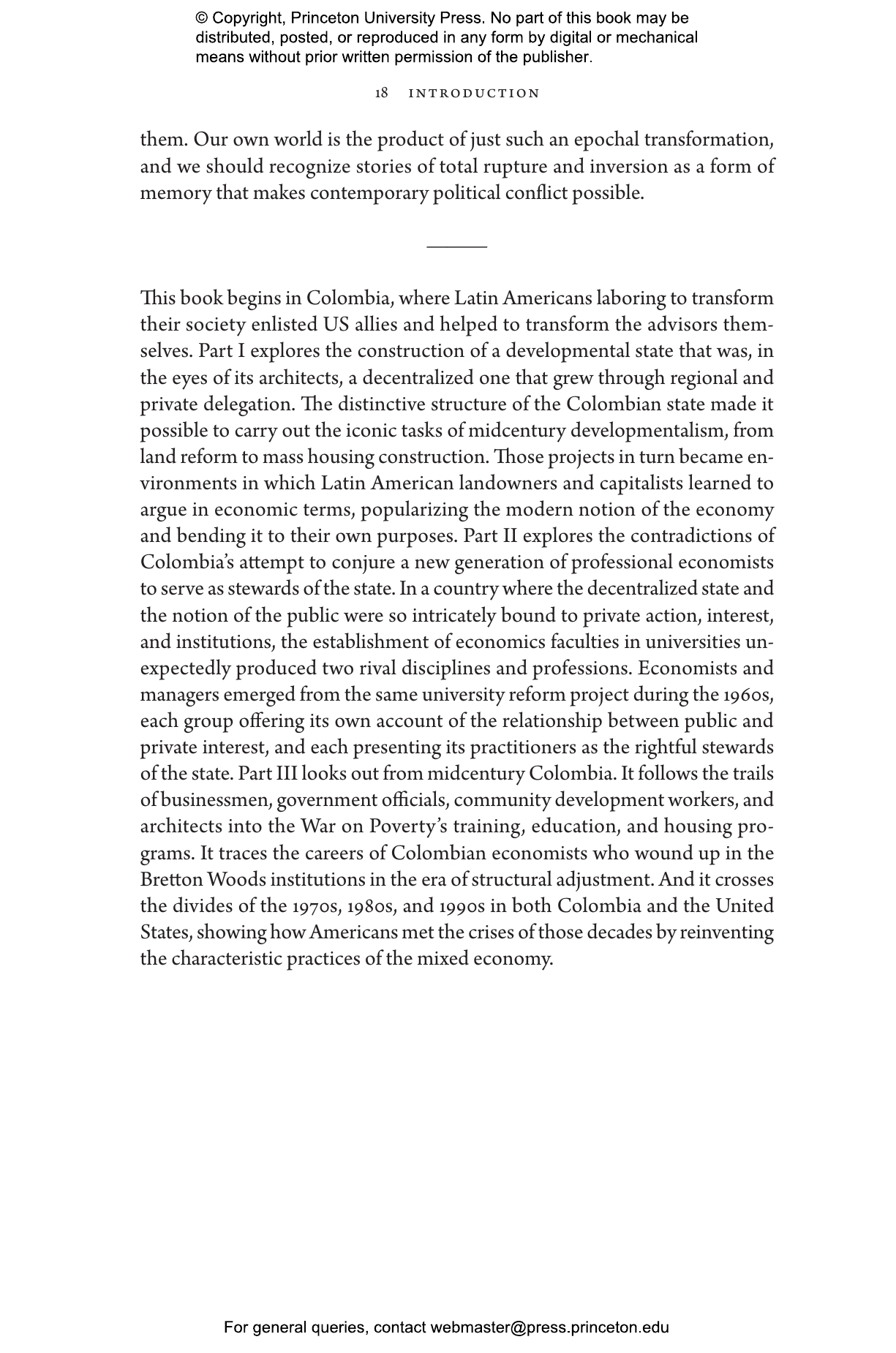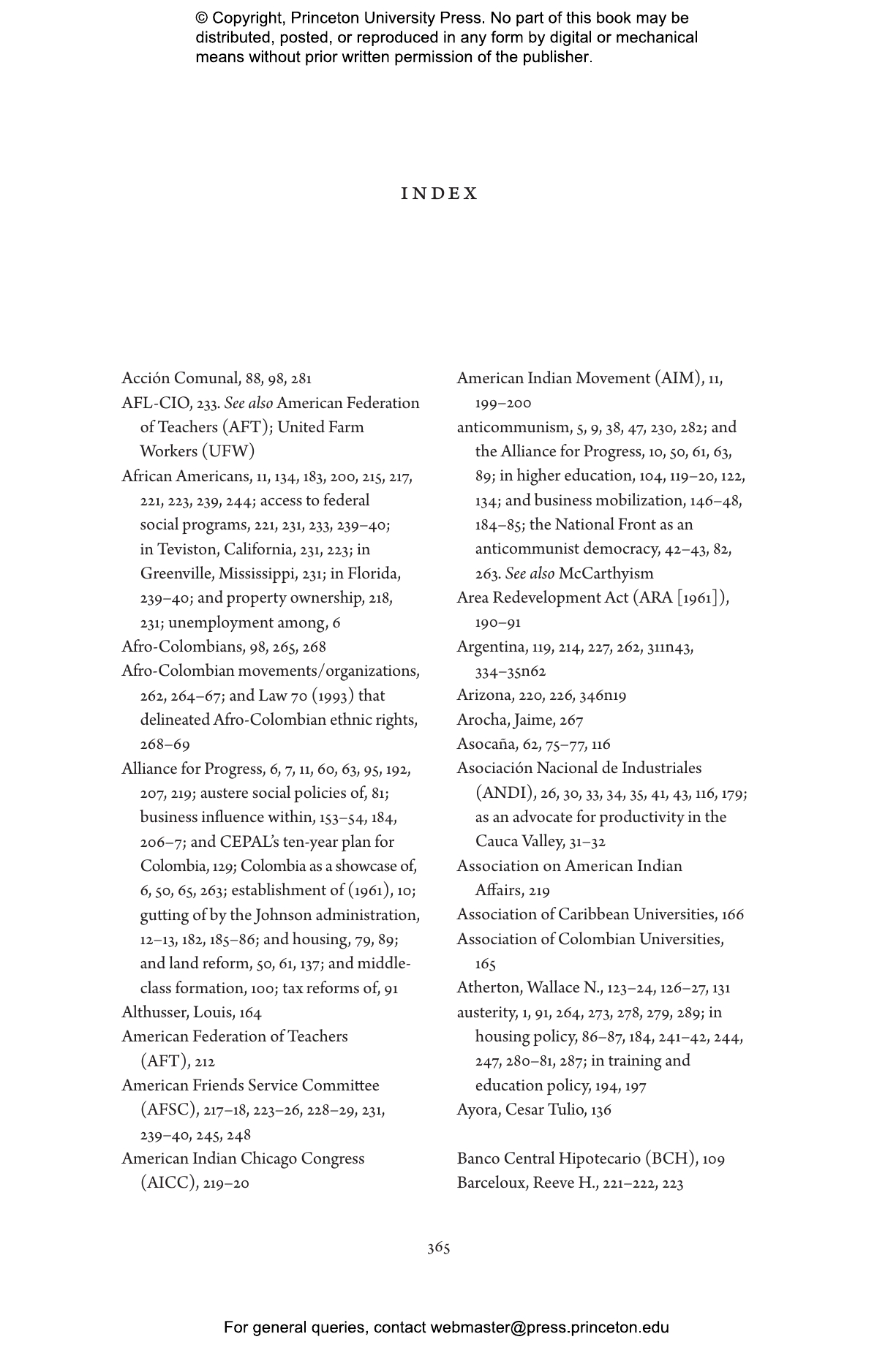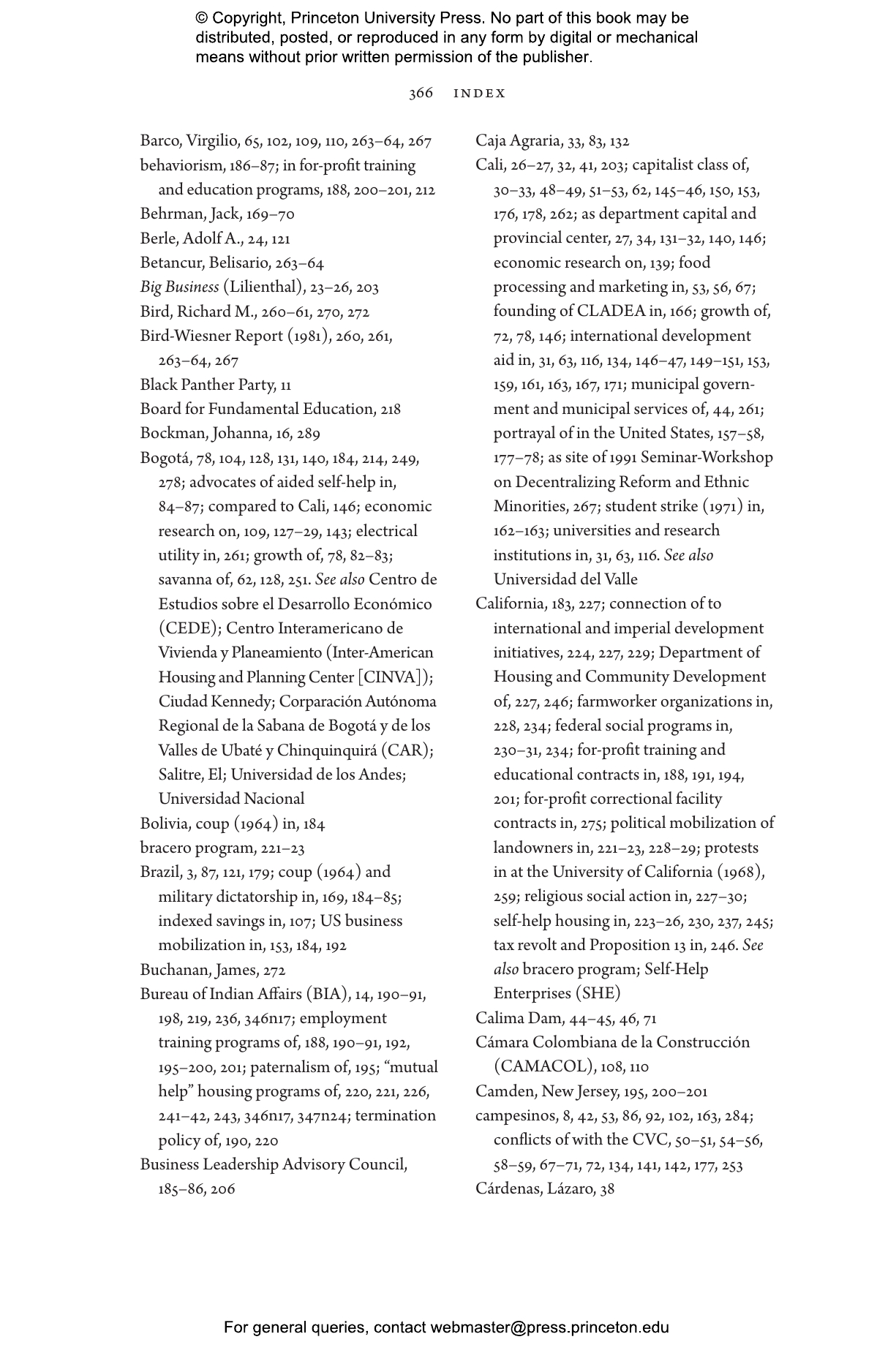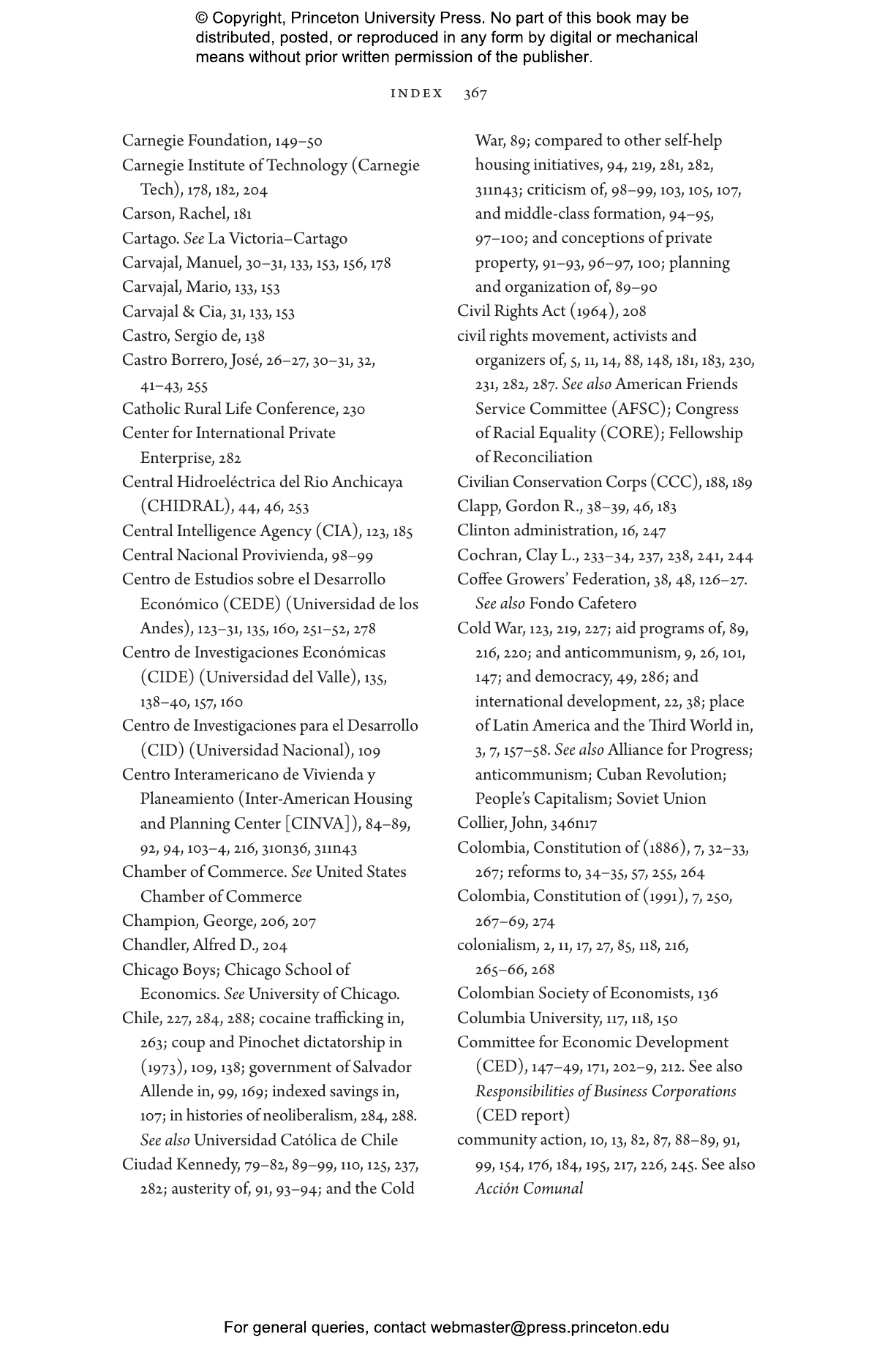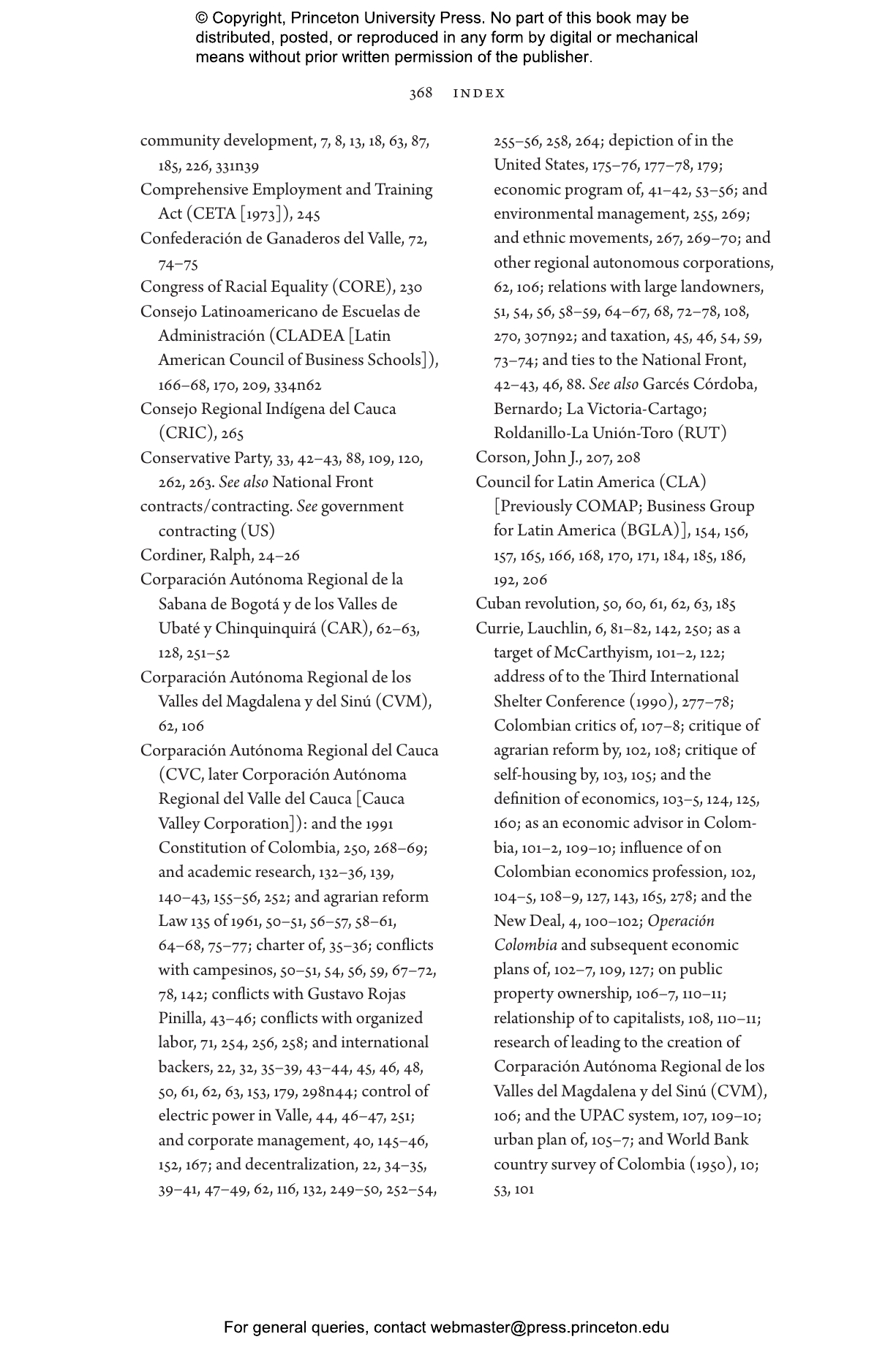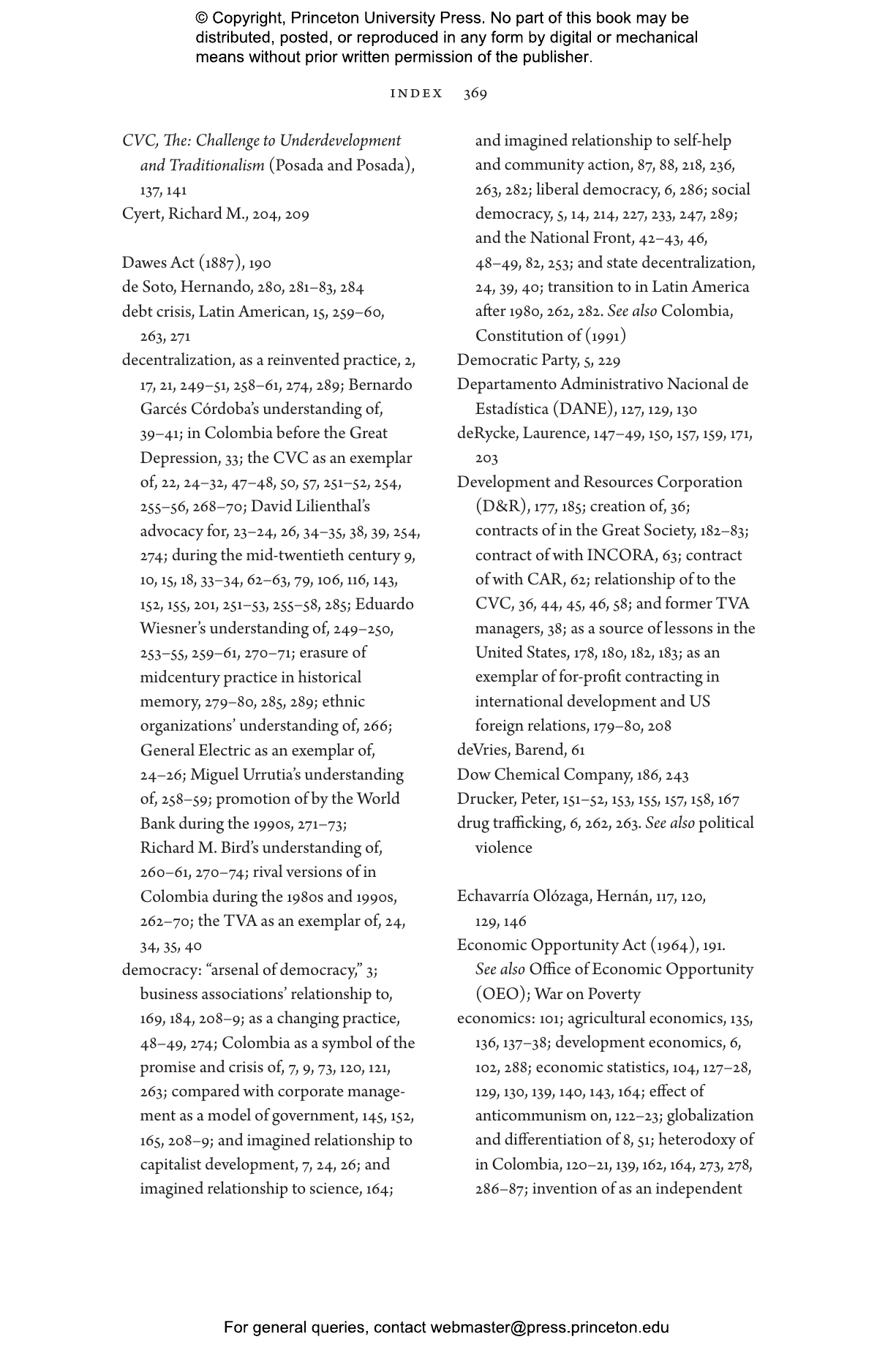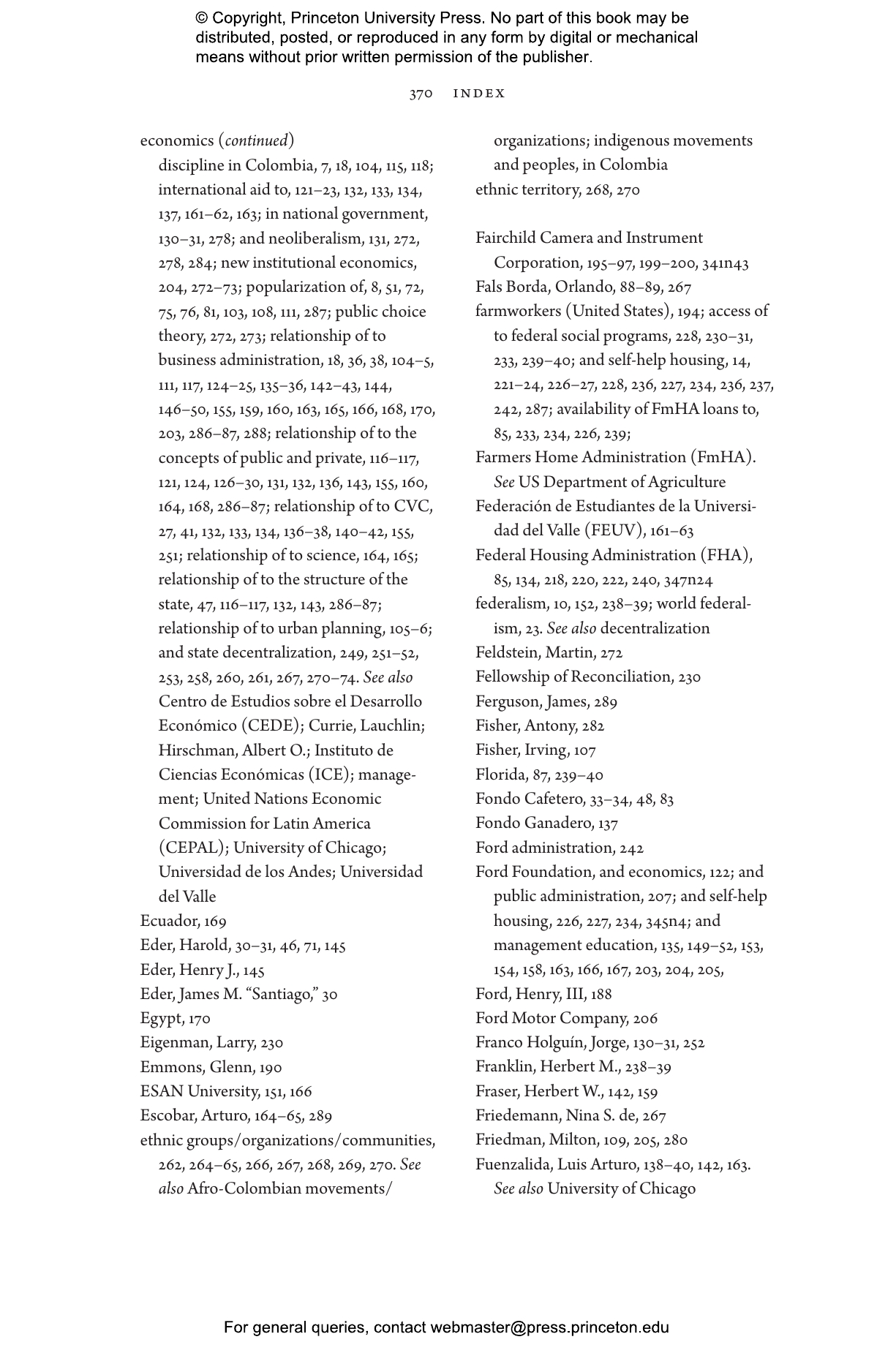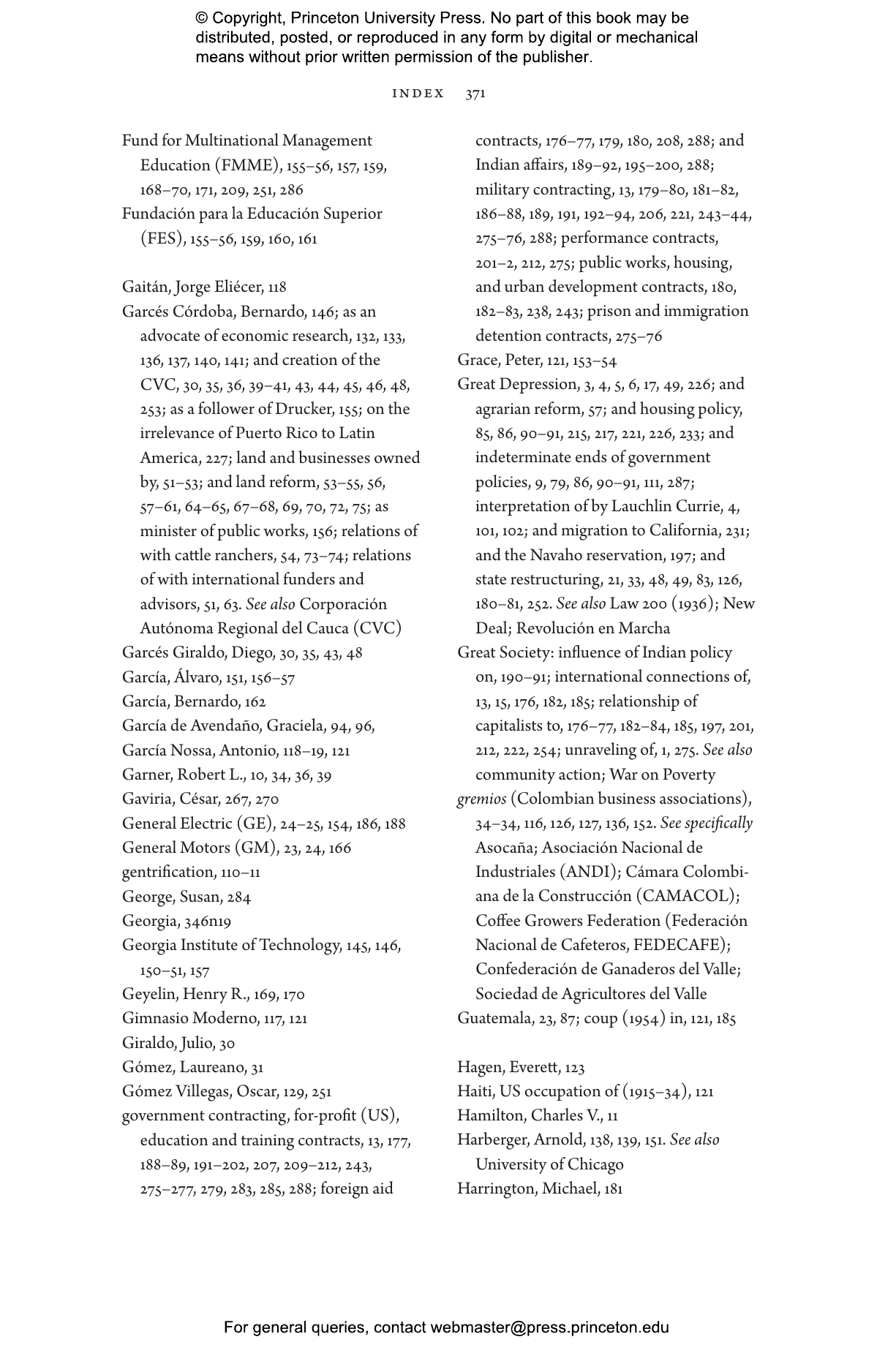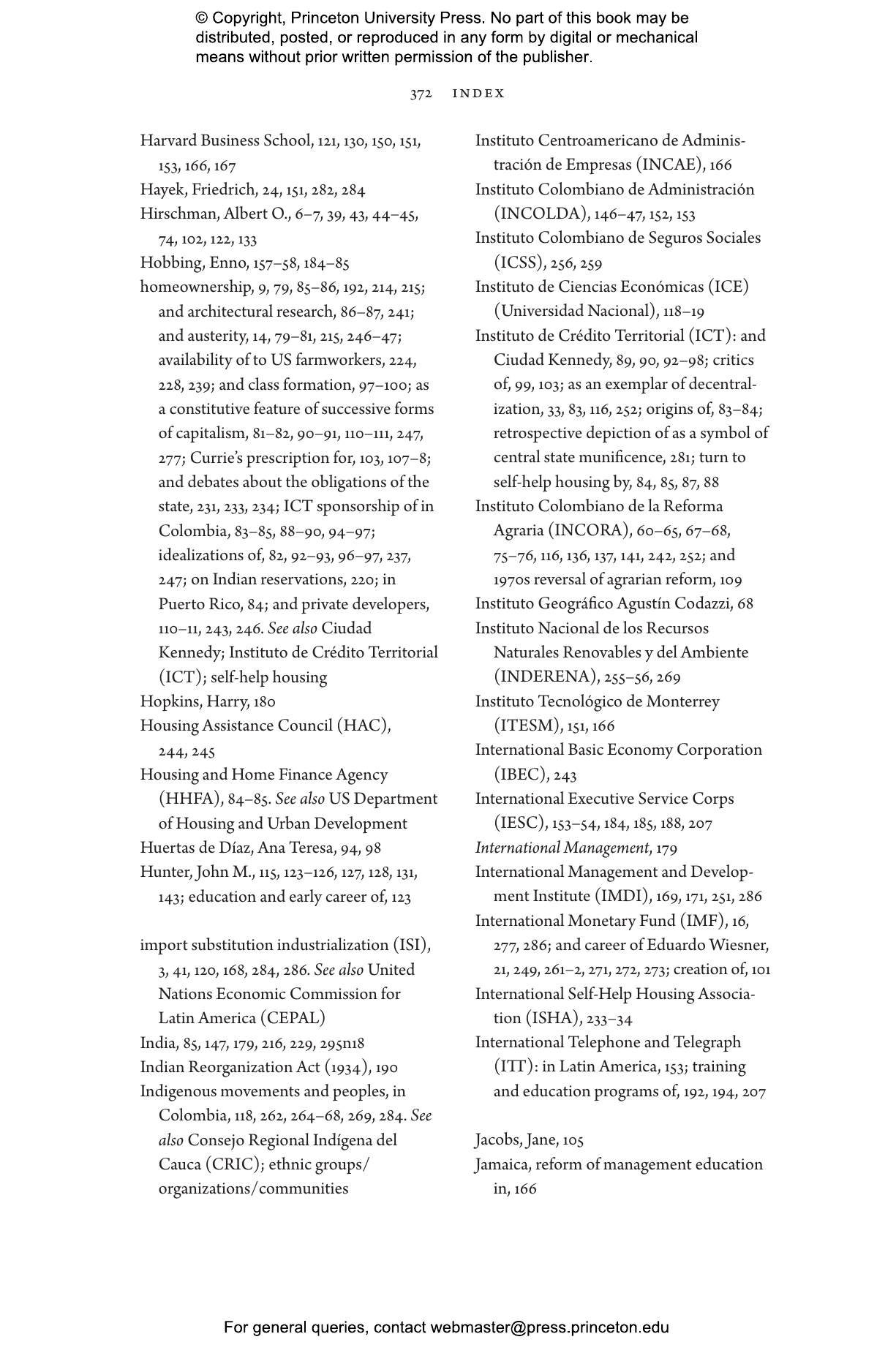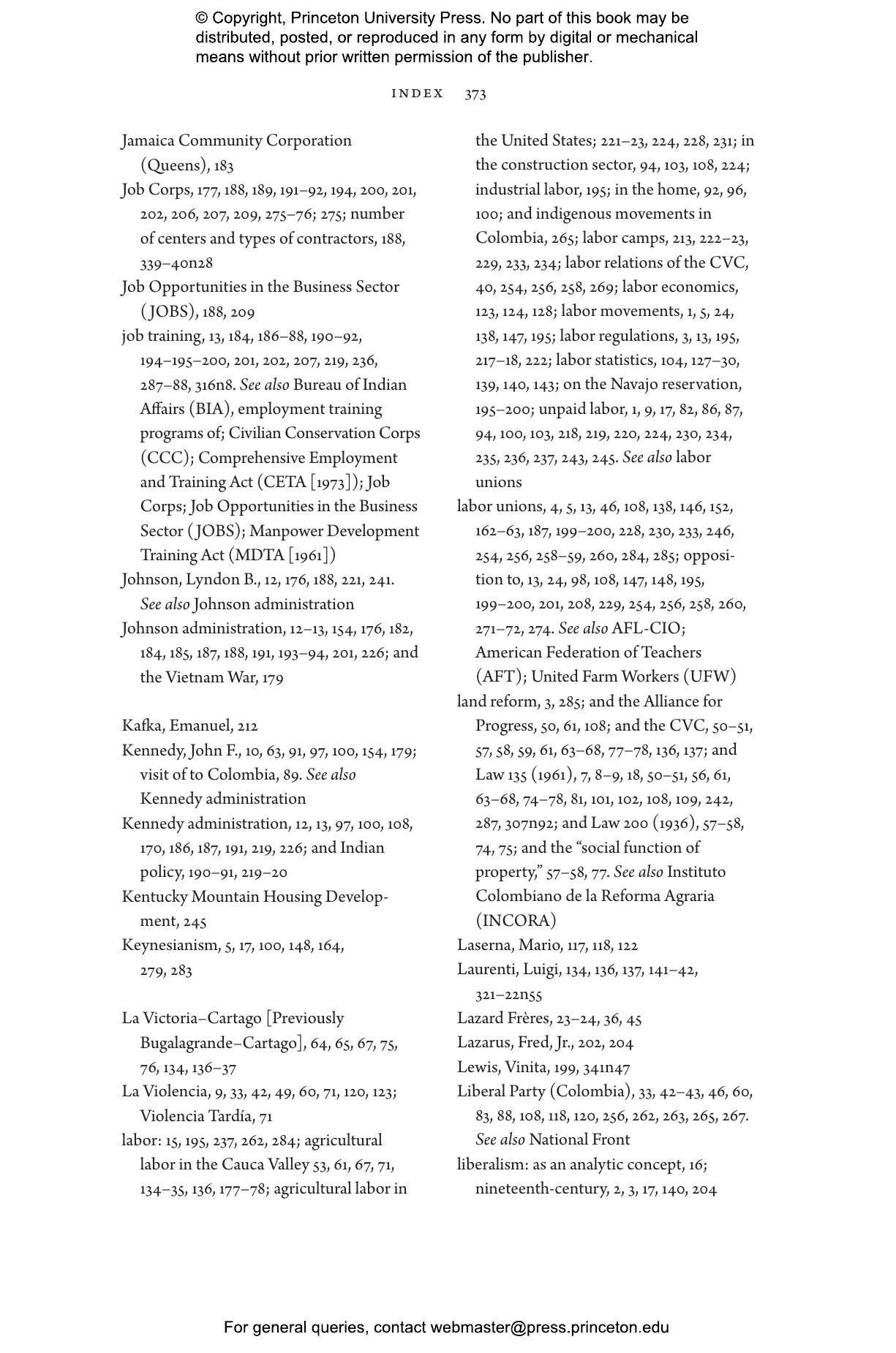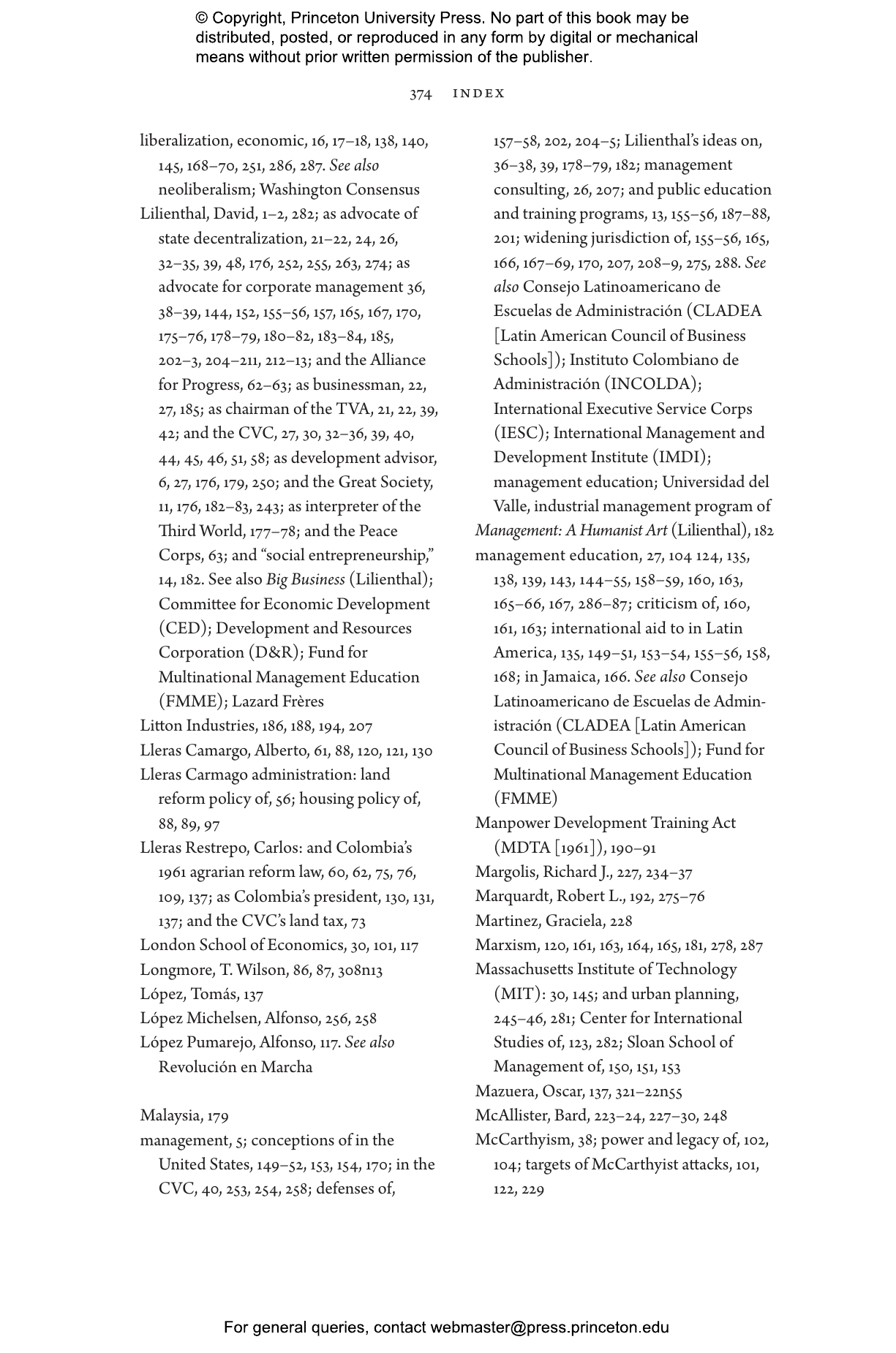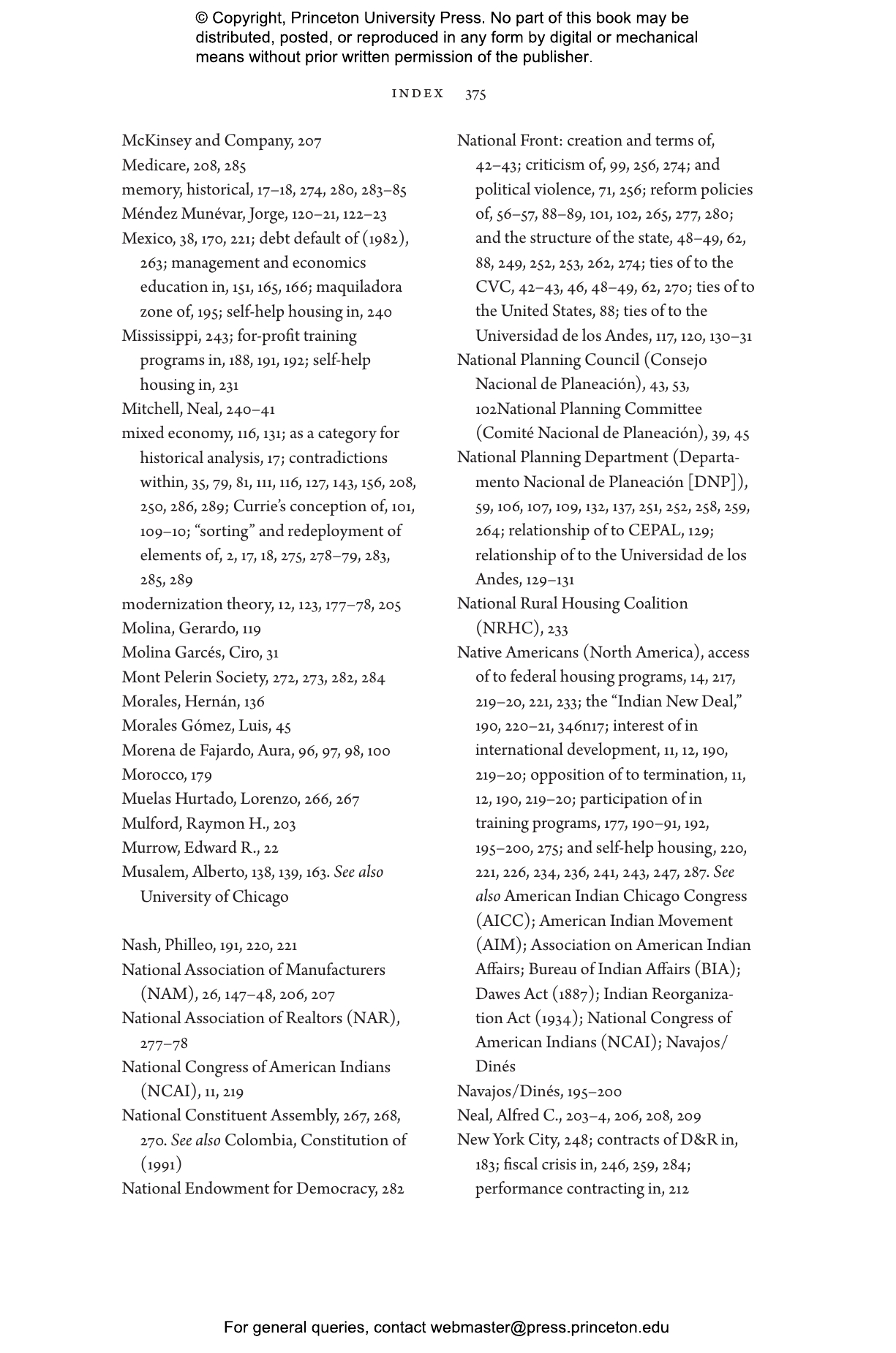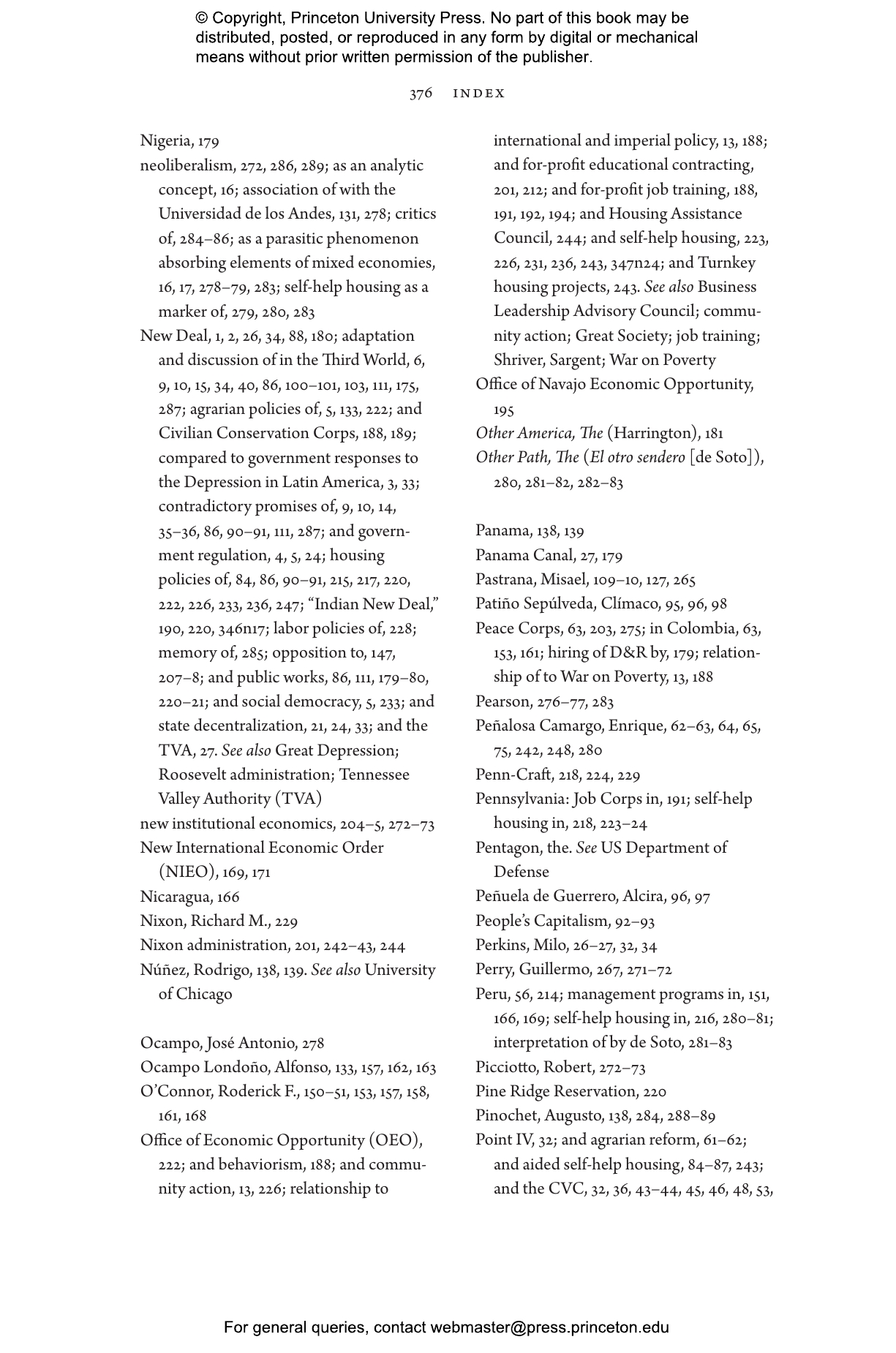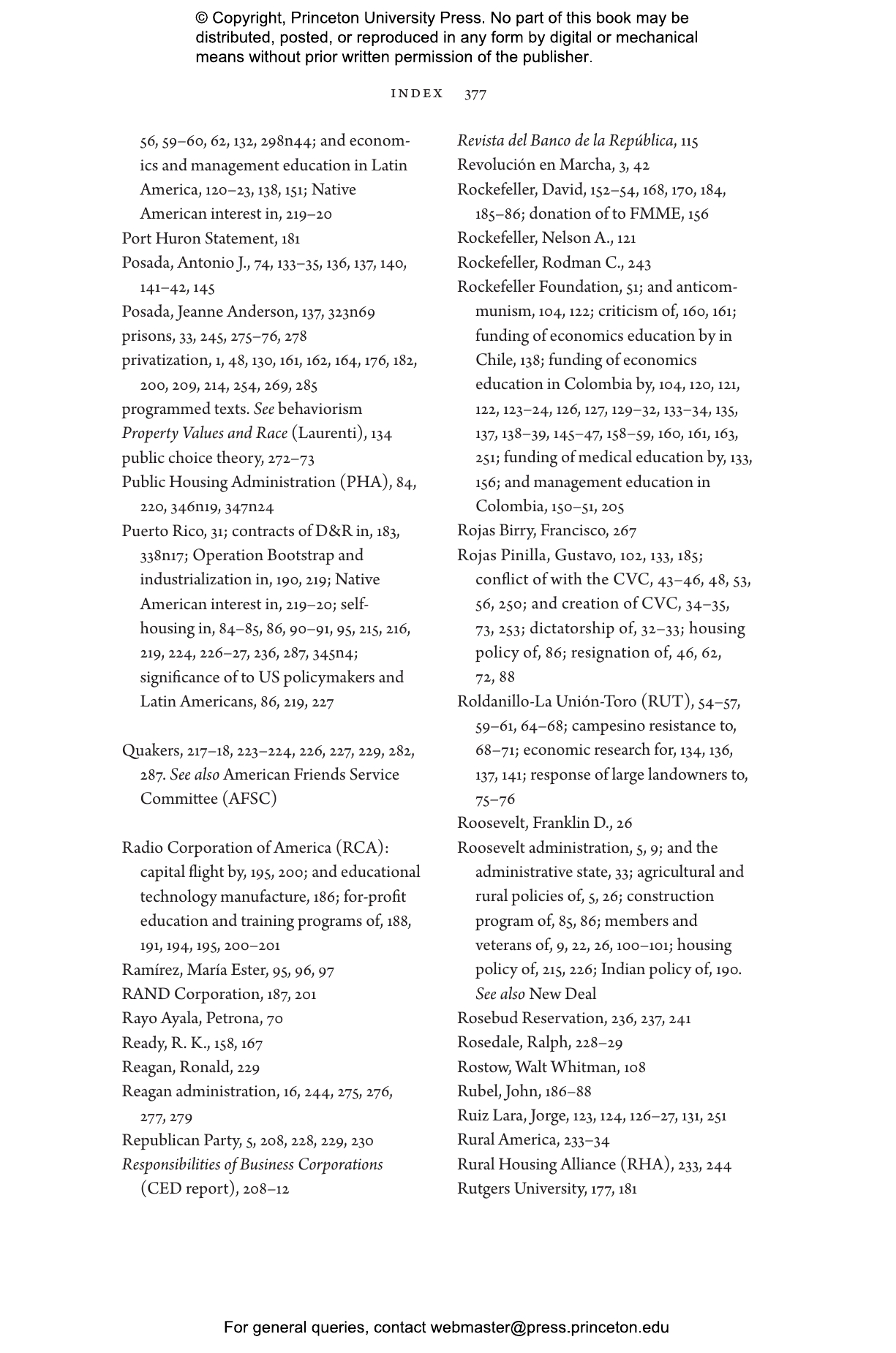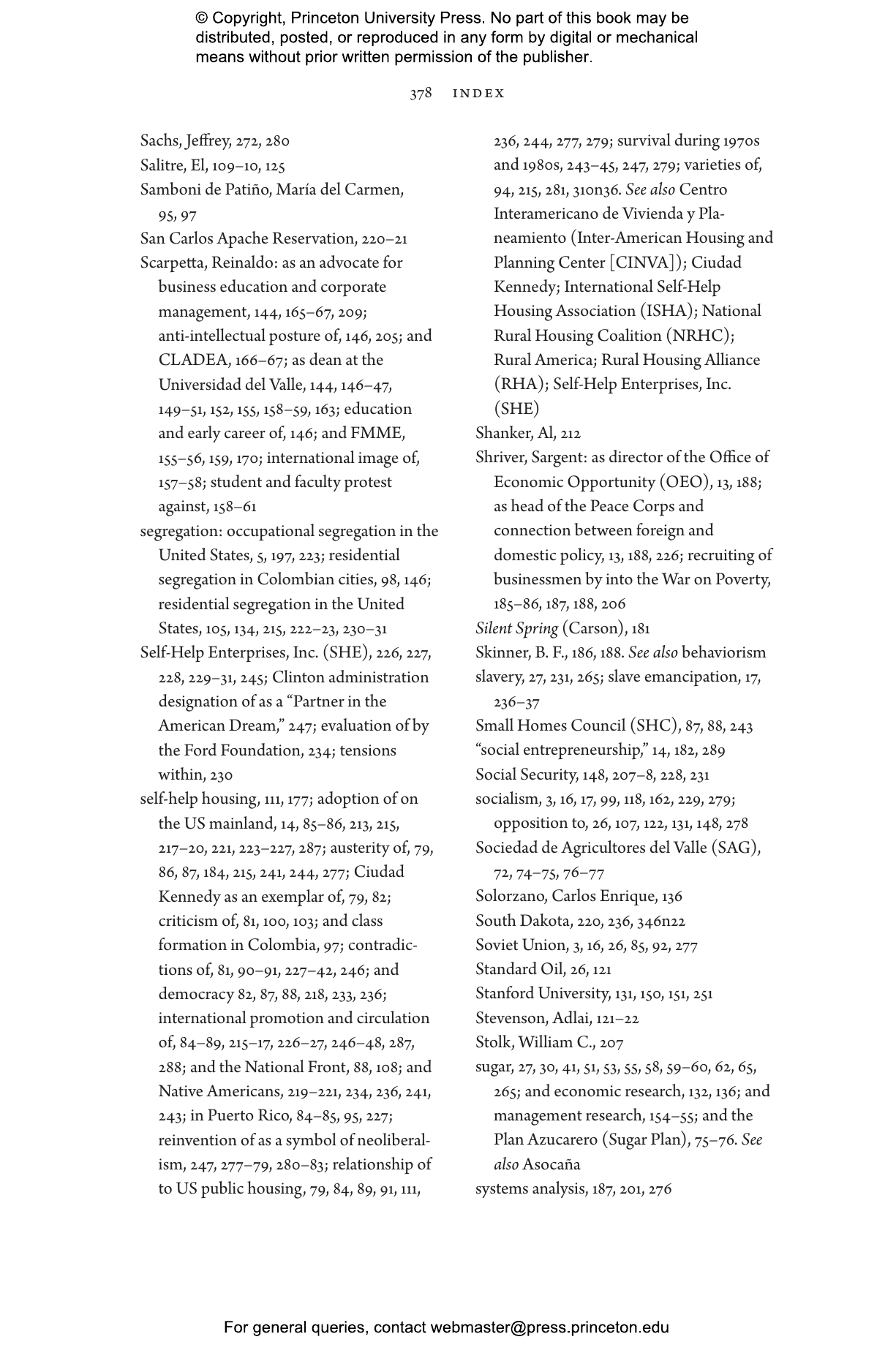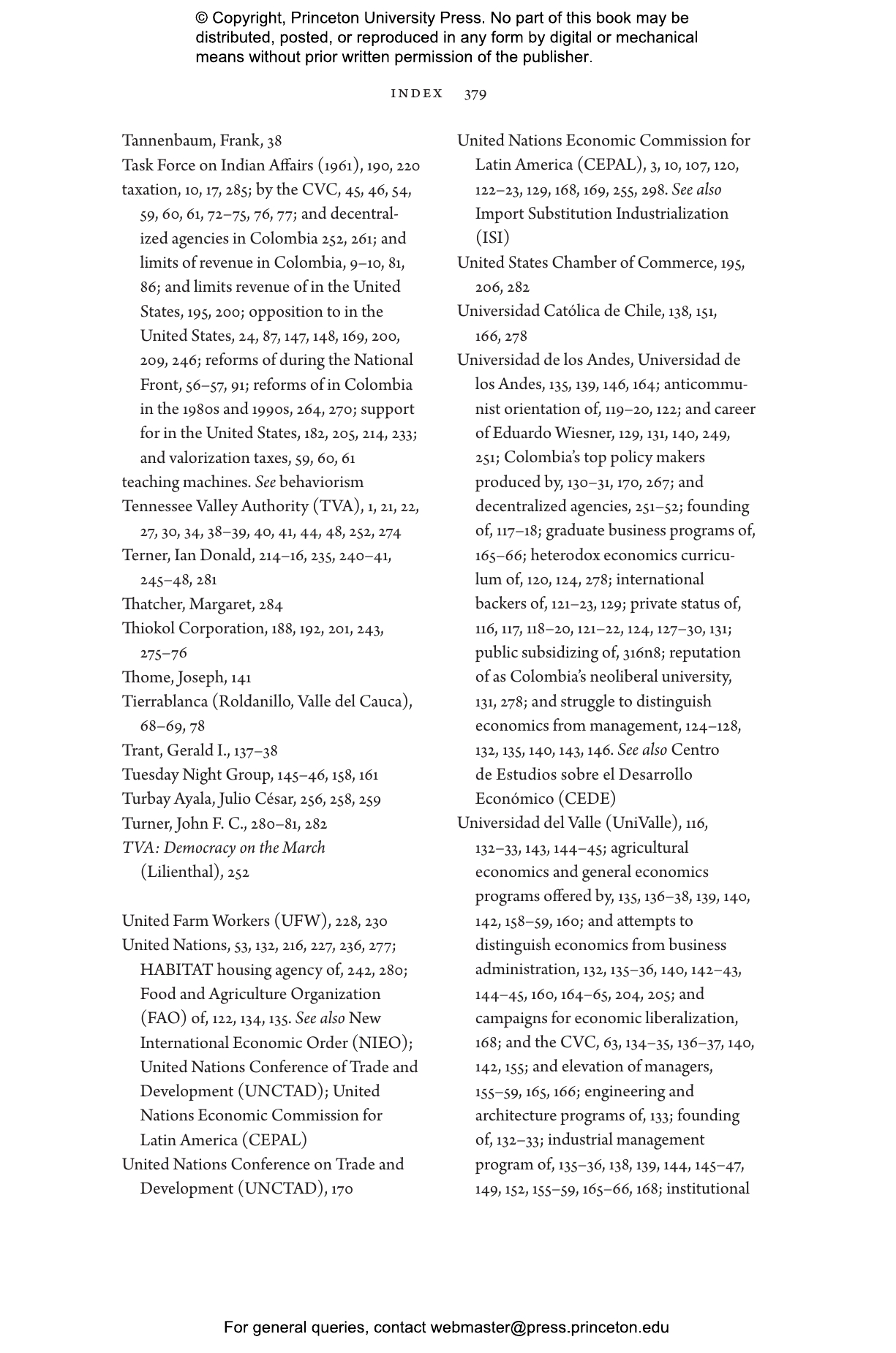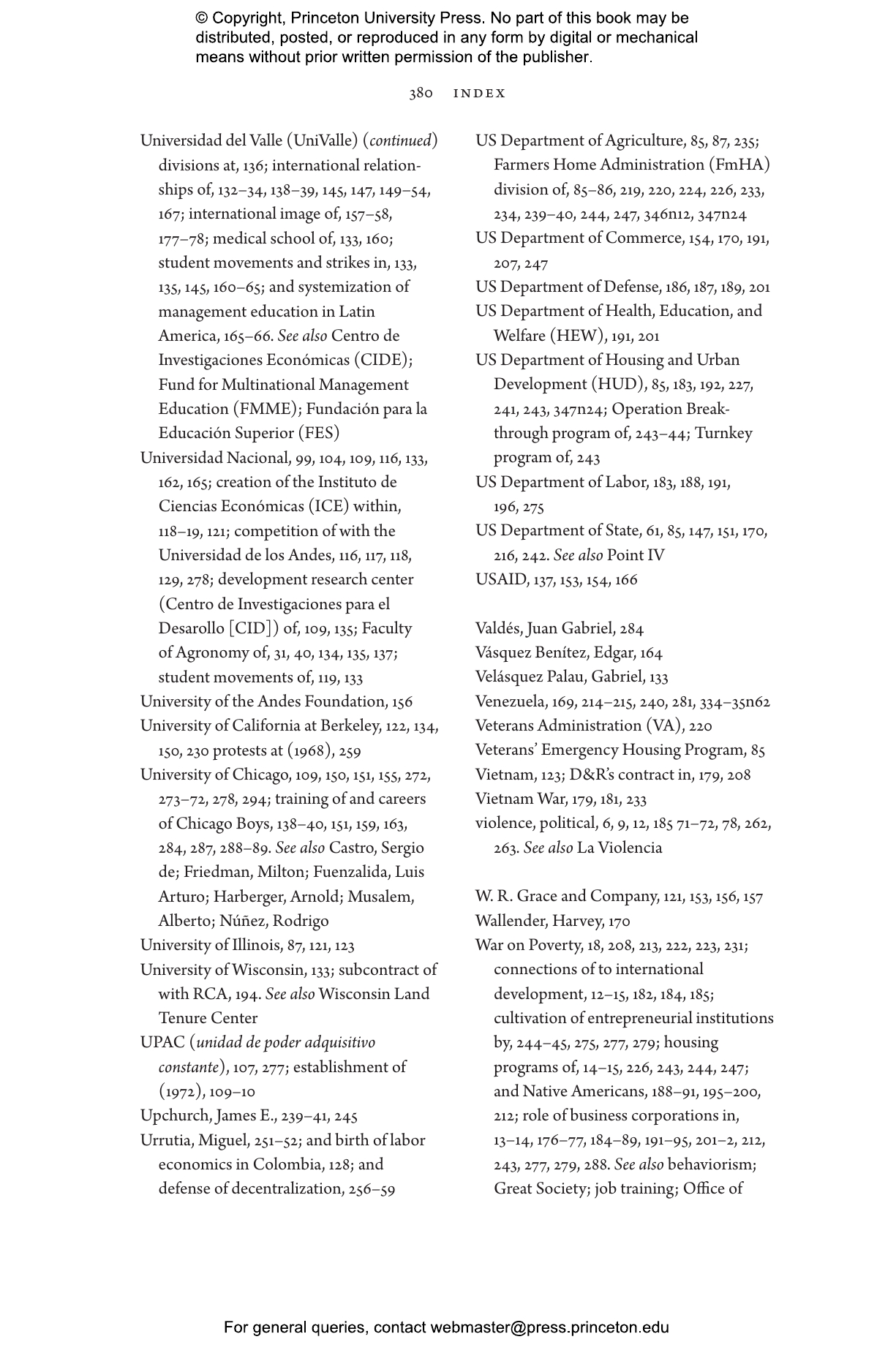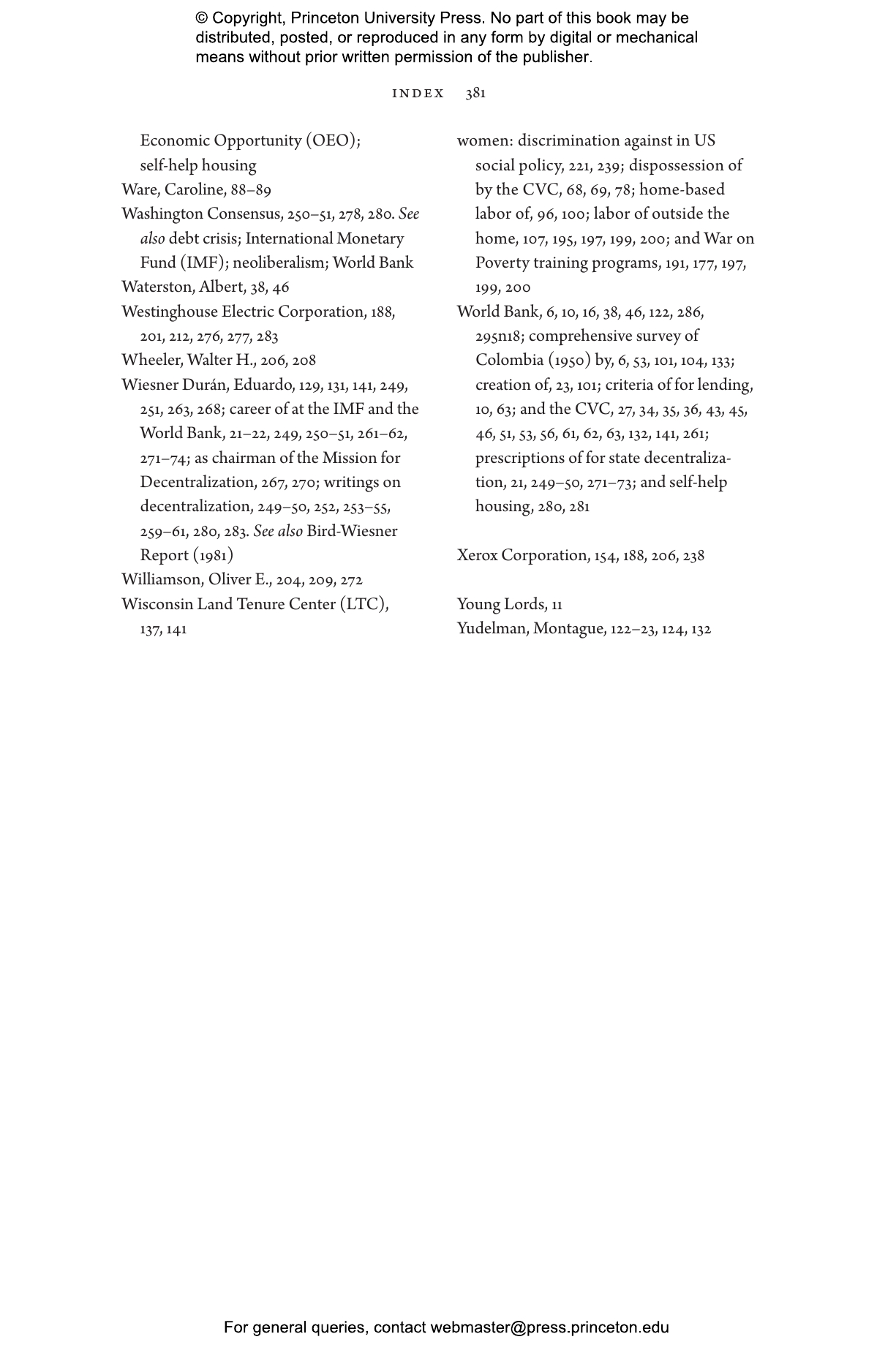In the years after 1945, a flood of U.S. advisors swept into Latin America with dreams of building a new economic order and lifting the Third World out of poverty. These businessmen, economists, community workers, and architects went south with the gospel of the New Deal on their lips, but Latin American realities soon revealed unexpected possibilities within the New Deal itself. In Colombia, Latin Americans and U.S. advisors ended up decentralizing the state, privatizing public functions, and launching austere social welfare programs. By the 1960s, they had remade the country’s housing projects, river valleys, and universities. They had also generated new lessons for the United States itself. When the Johnson administration launched the War on Poverty, U.S. social movements, business associations, and government agencies all promised to repatriate the lessons of development, and they did so by multiplying the uses of austerity and for-profit contracting within their own welfare state. A decade later, ascendant right-wing movements seeking to dismantle the midcentury state did not need to reach for entirely new ideas: they redeployed policies already at hand.
In this groundbreaking book, Amy Offner brings readers to Colombia and back, showing the entanglement of American societies and the contradictory promises of midcentury statebuilding. The untold story of how the road from the New Deal to the Great Society ran through Latin America, Sorting Out the Mixed Economy also offers a surprising new account of the origins of neoliberalism.
Awards and Recognition
- Winner of the Alice Amsden Book Award, Society for the Advancement of Socio-Economics
- Winner of the Murdo J. MacLeod Book Prize, Latin American and Caribbean Section of the Southern Historical Association
- Co-Winner of the EHS First Monograph Prize, Economic History Society
- Co-Winner of the Michael H. Hunt Prize in International History, Society for Historians of American Foreign Relations
- Honorable Mention for the Stuart L. Bernath Book Prize, Society for Historians of American Foreign Relations
- Finalist for the Berkshire Conference of Women Historians Book Prize
- Honorable Mention for the Allan Sharlin Memorial Award, Social Science History Association
"The strengths of the book are many, and the originality of the argument and the well-researched chain of events on the micro and meso levels make the book both a page-turner and a real contribution to the discussion on how and why the mixed economy, or the third way, is such a tightrope, both in the Americas and elsewhere."—Martin Andersson, Economic History Review
"[A] dazzling, transnational history. . . . [The] insights it provides into the link between decentralized development from 50 years ago and contemporary privatization across the Americas is revelatory."—J. M. Rosenthal, Choice Reviews
"Sorting Out the Mixed Economy [is Amy Offner’s] epic and field-changing work."—Quinn Slobodian, Dissent Magazine
"In telling the story of Lilienthal and other ex–New Deal officials, Amy C. Offner’s Sorting Out the Mixed Economy remakes a popular understanding of how today’s neoliberalism was built. . . . Offner’s book has left us better equipped to understand this past, and to look ahead toward future turbulence."—Pablo Pryluka, Public Books
"Sorting Out the Mixed Economy is an ambitious and thought-provoking study that reframes our understanding of both development and neoliberalism and will shape research in many scholarly fields. . . . In terms of the history of relations between the United States and Latin America, Offner inverts one of the field’s most important narratives."—Margarita Fajardo, H-LatAm
"One of the great virtues of Offner’s book is that it eschews a discussion of international development in the sense of a project undertaken by donors in a foreign country, but rather views the US involvement in Colombia from the 1950s to the 1980s, as well the New Deal and War on Poverty in the US, as intertwined projects. It is a conceptual shift that has major implications for how we study development. . . . Offner’s book leaves us wondering if there is such a thing as a history of development to be written separately from the history of political economy."—Journal of Contemporary History, Artemy M. Kalinovsky
"Sorting out the Mixed Economy succeeds brilliantly in illuminating the internal contradictions of mid-century development projects and in demonstrating the deep roots of policies such as decentralization, privatization, and fiscal austerity. . . . The book should be required reading for historians of development, state action, and neoliberalism in Latin America and transnational historians of Latin America and the United States."—Andra B. Chastain, Journal of Social History
"Amy Offner has written an original and intellectually subversive book that, in the guise of a detailed study of the development politics of Colombia in the mid-twentieth century, mounts a powerful challenge to established methods of studying neoliberal thought and practice. . . . Offner reminds us that we ought to look beyond the [Mont Pelerin Society] in constructing genealogies of neoliberalism and to consider the less formal and more popular languages of economic argument that have also played a role in public-policy debates."—Ben Jackson, Modern Intellectual History
"This extensively researched and sophisticated study breaks through conventional origin stories of neoliberalism. . . . This is regional history at its best. Offner shows a command of the institutions, politics, landscapes, and social structure of Colombia, no less than the US. . . . Interviews with early residents of [self-help] housing stands out as a social history gem."—Eileen Boris, Labor: Studies in Working-Class History of the Americas
"Offner’s book is an exceptional contribution to the fields of US history, history of economics, Latin American state-building and US social welfare policy, and of the cataclysm of the final decades of the twentieth century."—Fernanda Conforto de Oliveira, Journal of Latin American Studies
"This book is essential reading for historians of development and public policy in the twentieth-century Americas. Agricultural historians will be particularly interested in Offner’s analysis of Colombia’s early 1960s land reform and the questions that this raises about the nature of land reform in other contexts, particularly its often conflicting economic and social aims."—Eve E. Buckley, Agricultural History
"[A] profound contribution. . . . It may well be the most compelling appeal yet for historians to abandon the binary straitjacket of ‘First’ and ‘Third’ worlds."—Tore Olsson, Enterprise and Society
"A most welcome addition to our understanding of public policy in the United States and Colombia, Sorting Out the Mixed Economy shows the deep links between economic and social policy since the mid-twentieth century and also helps to explain the cruel erosion of the welfare state."—Victor Bulmer-Thomas, University College London
"With Sorting Out the Mixed Economy, Amy Offner stakes a claim for a whole new approach to understanding the U.S. development enterprise—and indeed U.S. political economy—in the mid-twentieth century. Startlingly original and deeply researched, the book reshapes our comprehension of the rightward trends in U.S. economic policy since the 1960s, as well as of the nature of U.S. engagement with Latin America."—David C. Engerman, Yale University
"Persuasively argued and thoroughly documented, Amy Offner's brilliant book is a model of historically embedded political economic analysis—not least in revealing how the best-laid designs of Cold War poverty warriors were continually reshaped by historical contingencies and popular resistance, and ultimately used to undermine the vision of democratic capitalism they were designed to promote."—Alice O'Connor, University of California, Santa Barbara
"Sorting Out the Mixed Economy is an agile narrative that makes a truly important contribution to the study of twentieth-century history, capitalism, and the state in the western hemisphere."—Marco Palacios, El Colegio de México
"With meticulous research and incisive analysis, Sorting Out the Mixed Economy demonstrates the thoroughly interwoven character of postwar strategies for Latin American economic development and U.S. domestic antipoverty policies. This alone would be a major contribution to the historiography of the Americas. But Amy Offner goes further, and makes a very compelling argument for the way in which corporate influence and private capital paved the way for our current neoliberal order."—Barbara Weinstein, New York University
